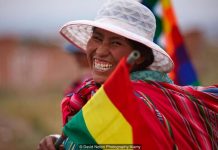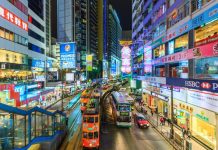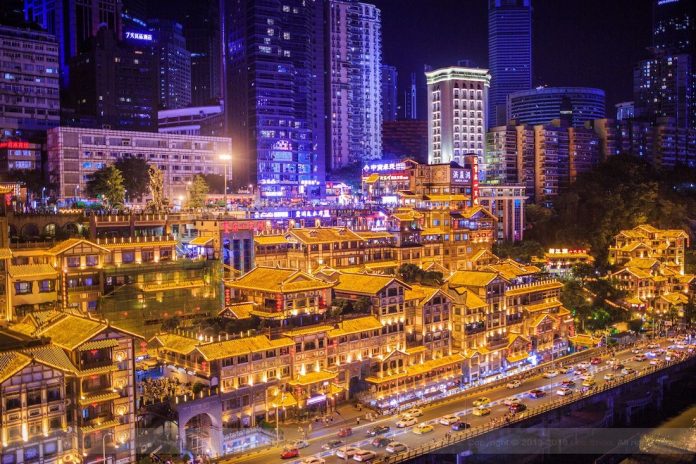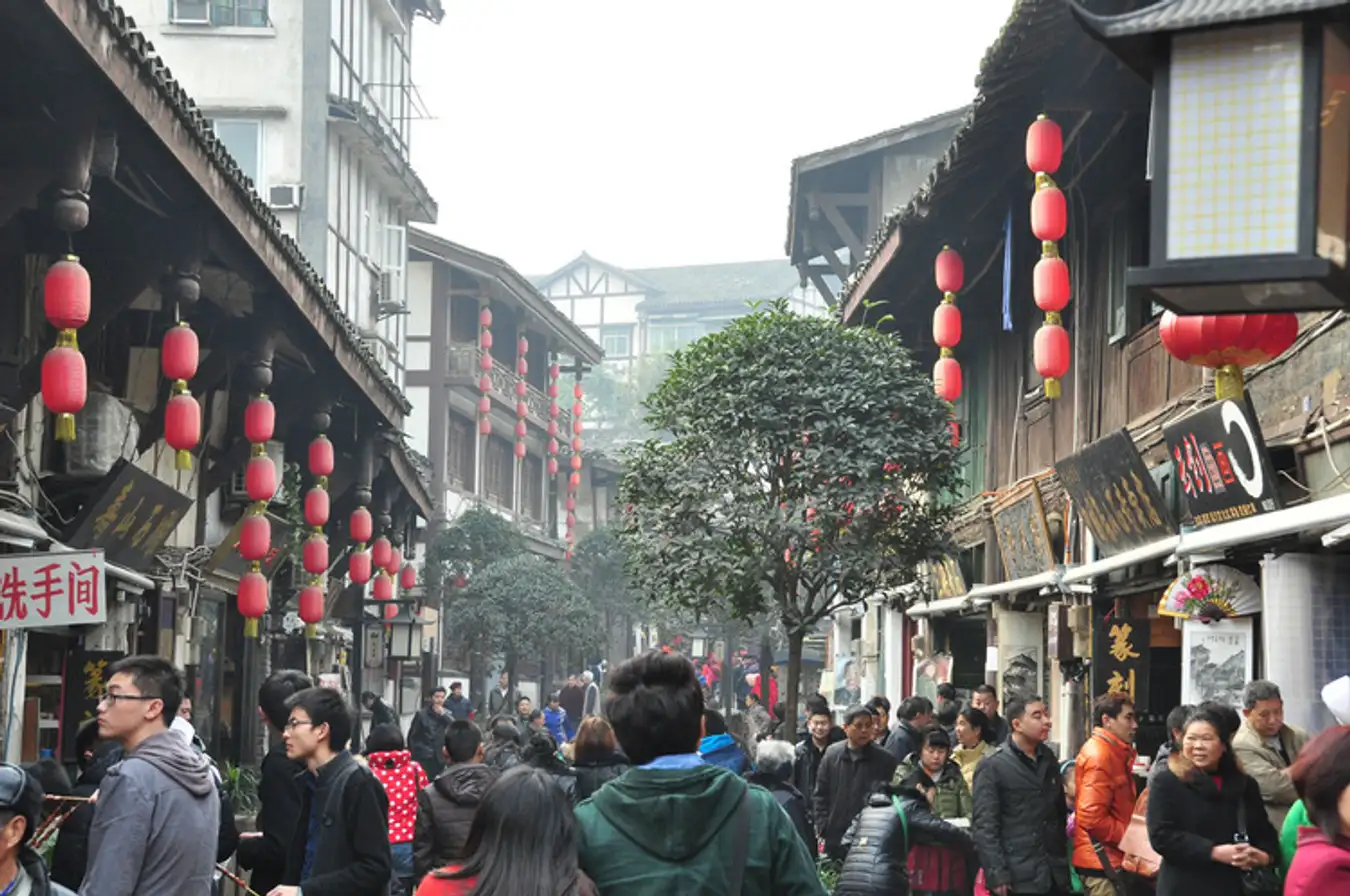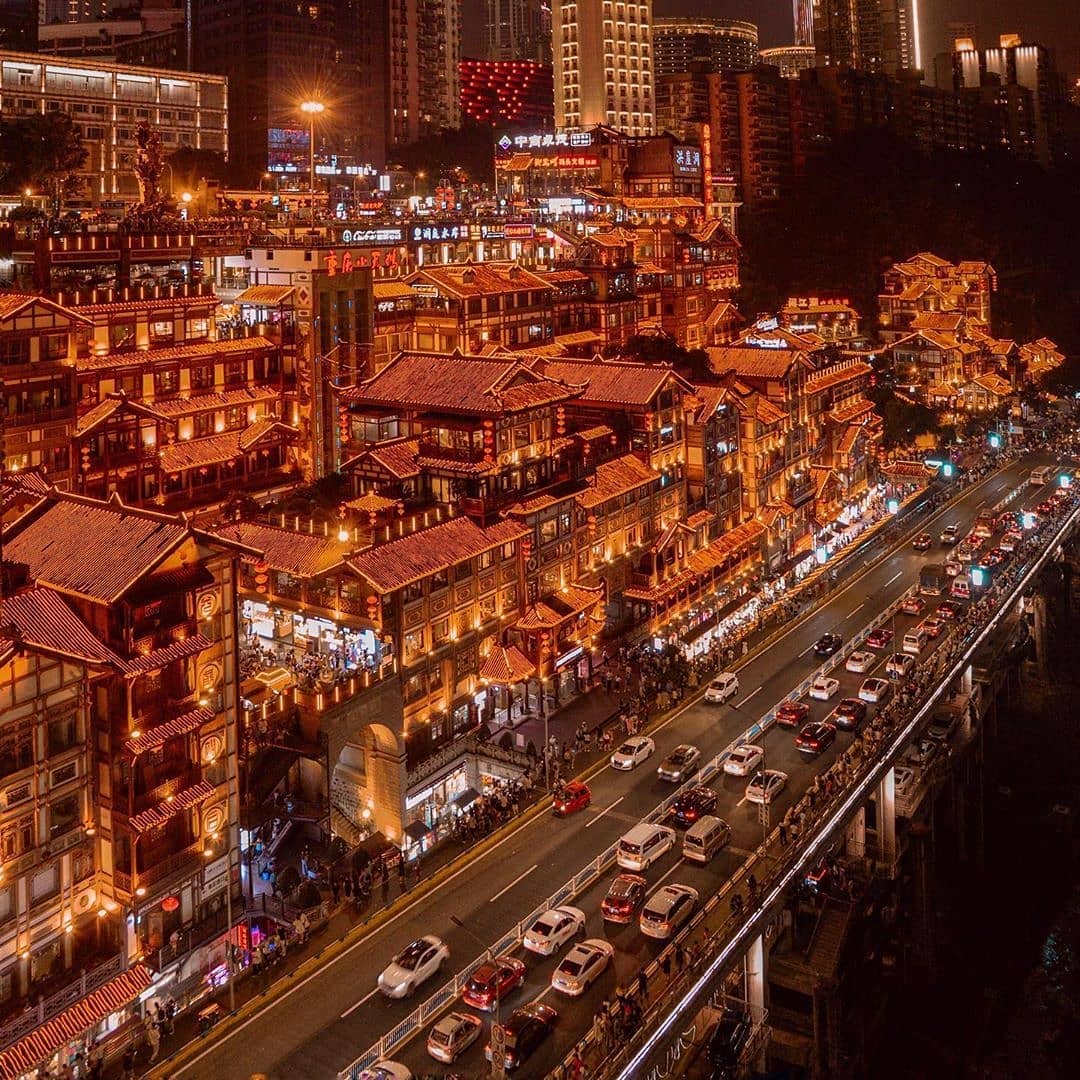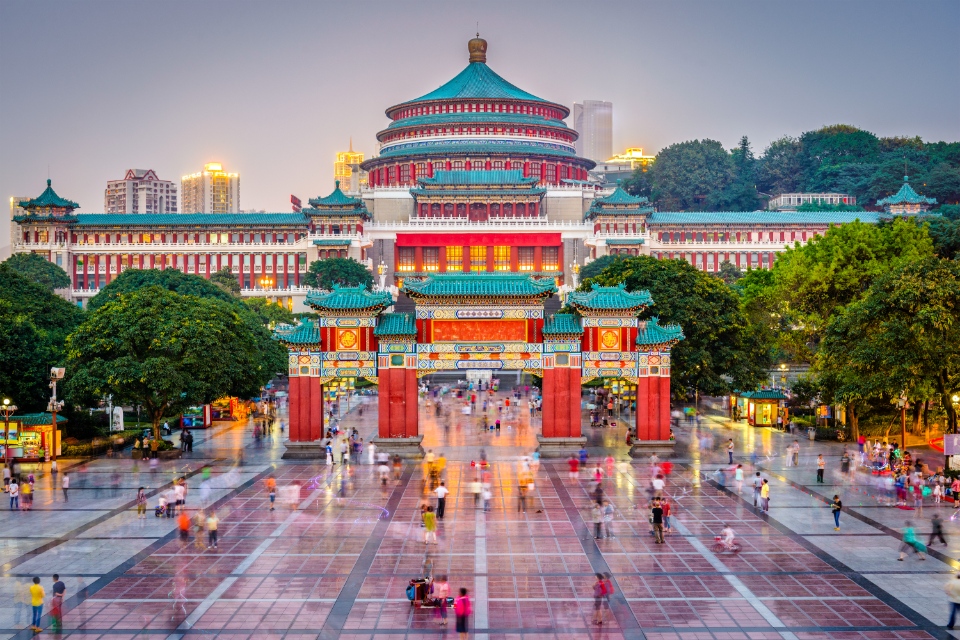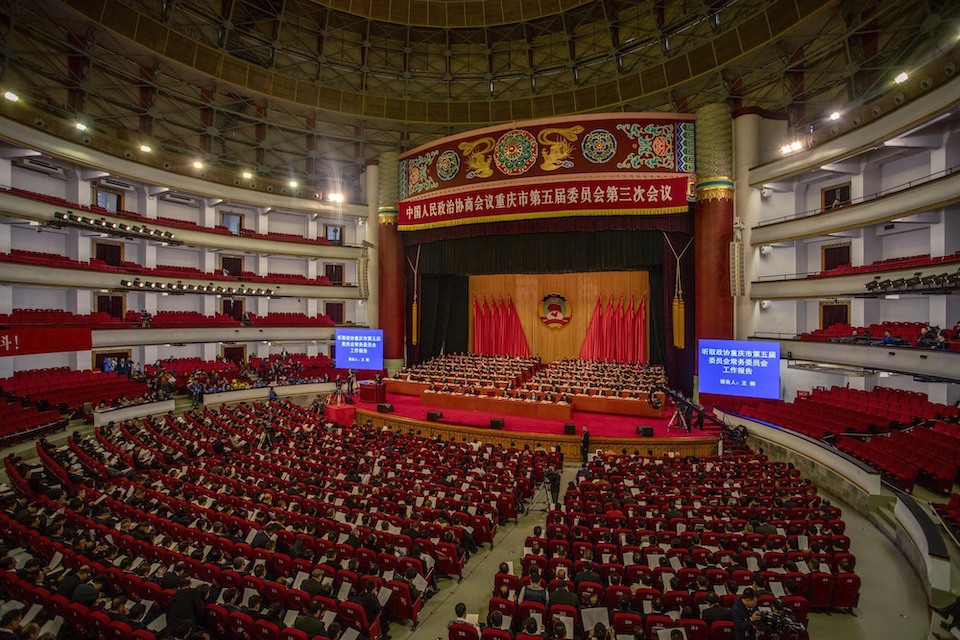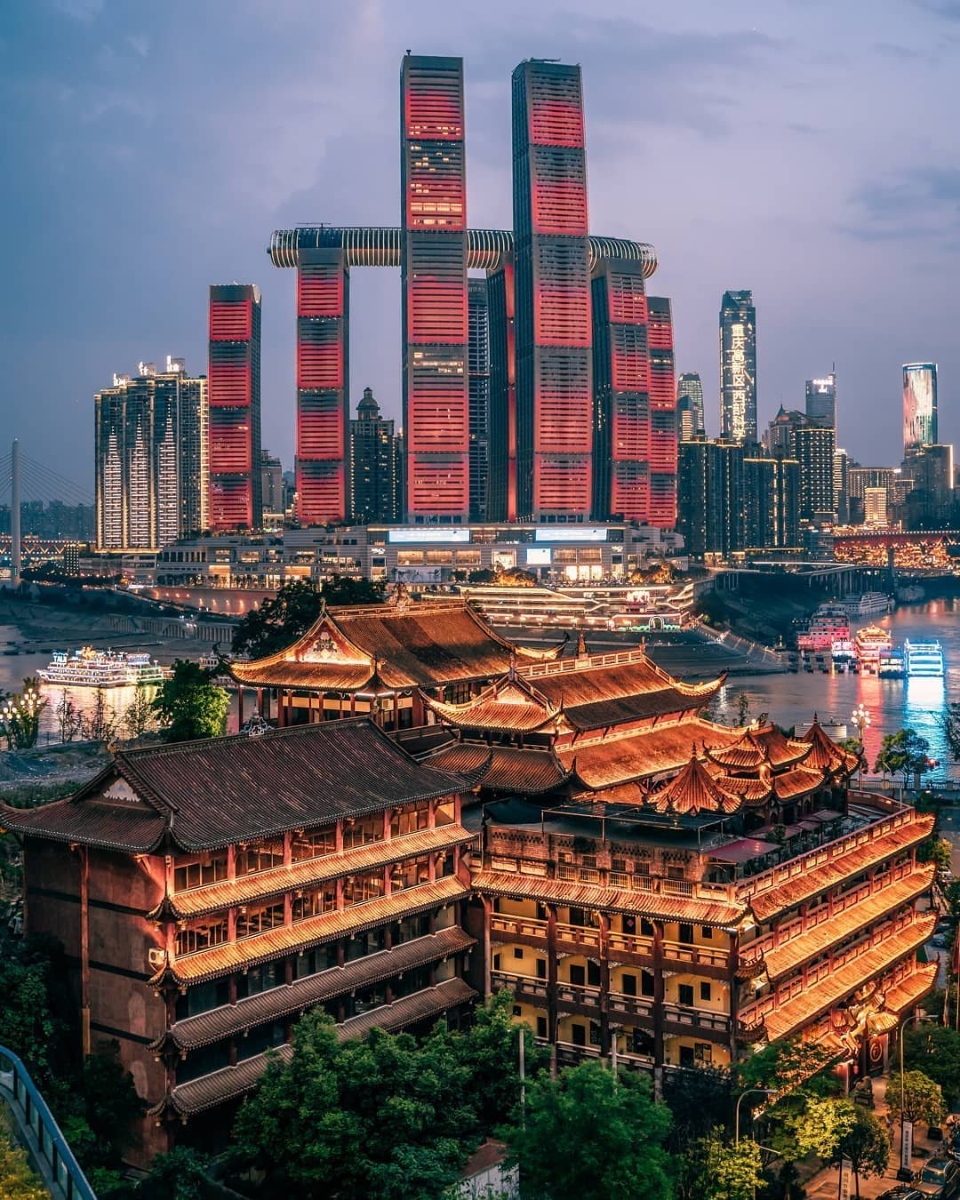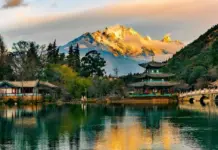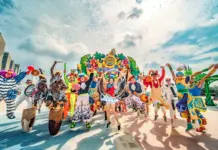As the largest and one of the most modern cities in China after Beijing, Shanghai and Tianjin, Chongqing city stands out by its flashy modernity combined with majestic natural scenery and historical relics. has long created an extremely attractive destination for tourists in recent years. Join us to learn more about Chongqing and the top places to visit in this enchanting city before planning your next great trip. So, where to go in Chongqing? Let’s check out our suggested 11+ must-go place, top Chongqing attractions and best places to visit in Chongqing as follows!
- Guide to Chongqing nightlife — 5+ best things to do in Chongqing at night
- Top things to do in Chongqing — 8 what to do in Chongqing & best things to do in Chongqing
- Chongqing travel blog — The fullest Chongqing travel guide for first-timers
- The ULTIMATE Yunnan Travel Guide for Independent Travelers
- Sunac Land Guangzhou review: A Four-Season Entertainment Experience
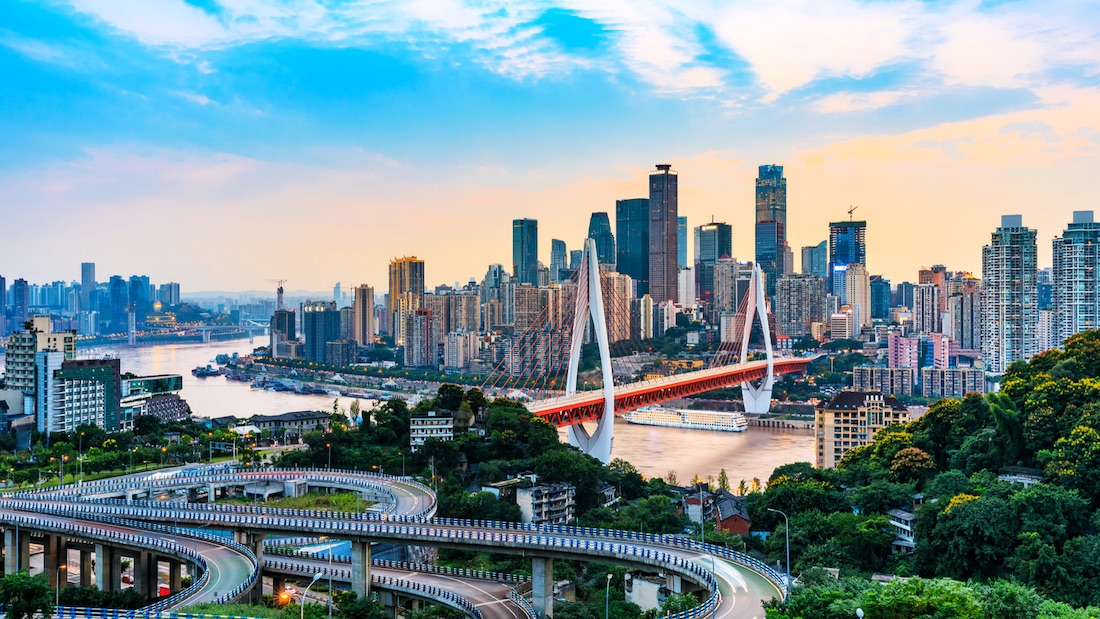
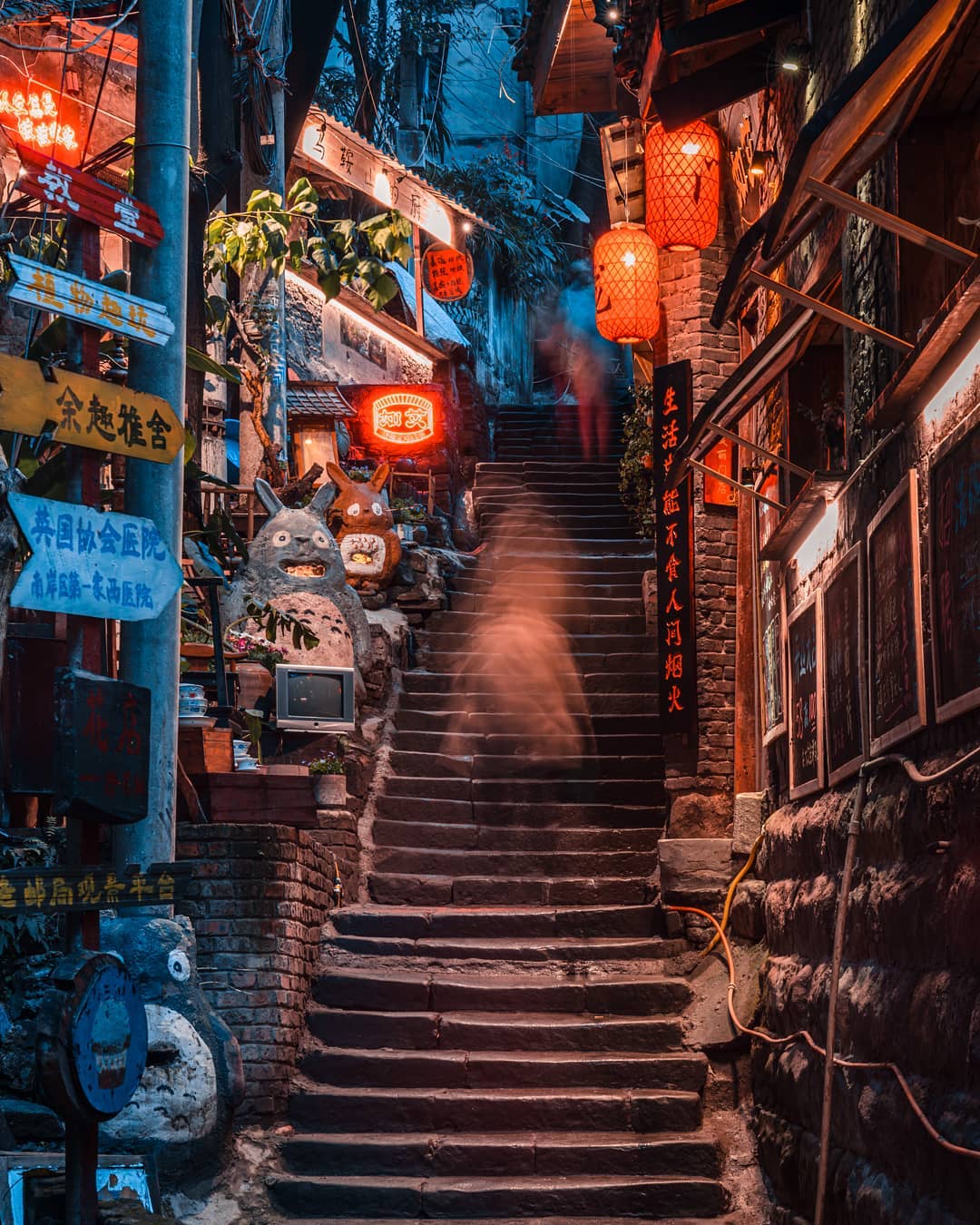
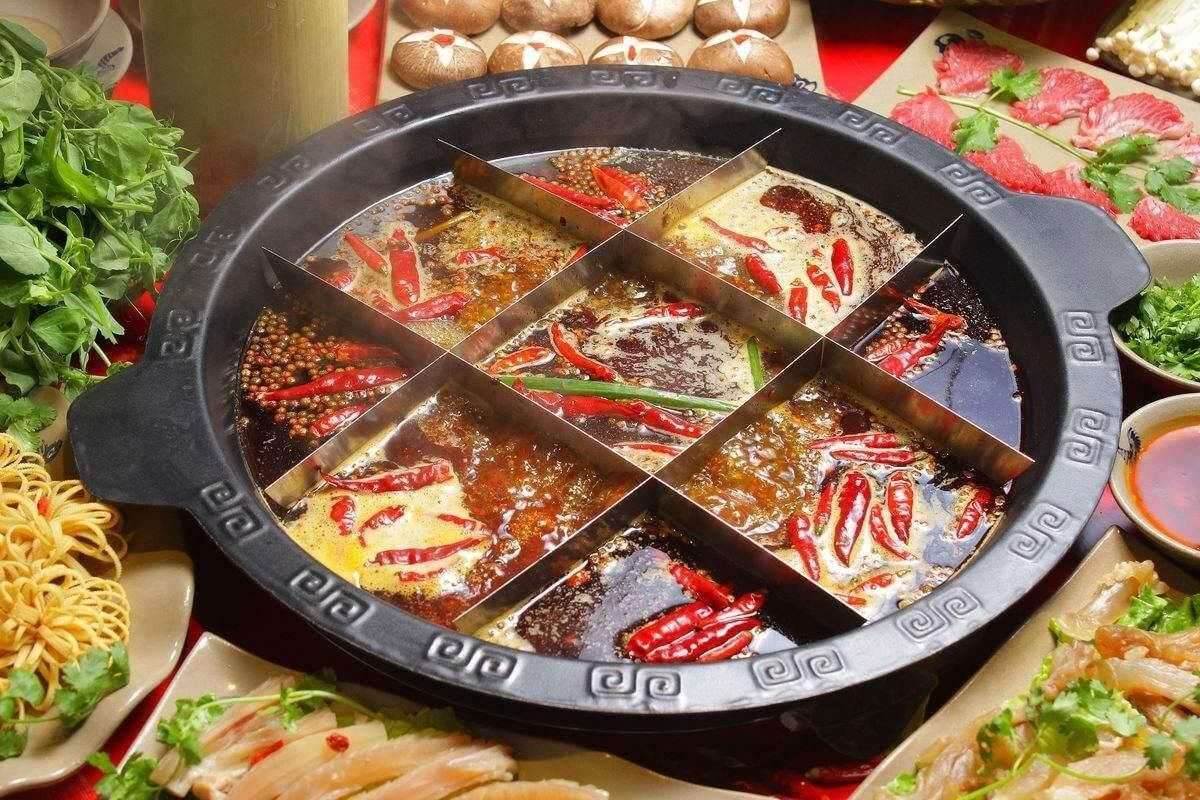
Overview of Chongqing
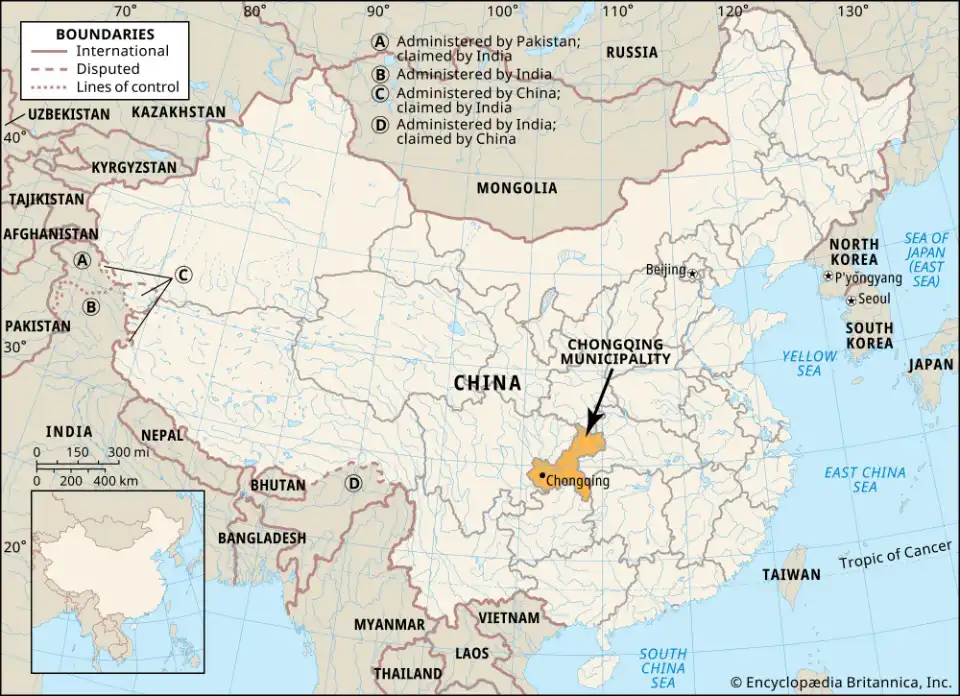
Chongqing is the largest metropolis in southwest China. This is the most modern river port city in the upper Yangtze River area, located at the confluence of the Yangtze River and Jialing River. Covering an area of 82,339 square kilometers, Chongqing city borders Hubei, Sichuan, Hunan, Guizhou, and Shaanxi provinces.
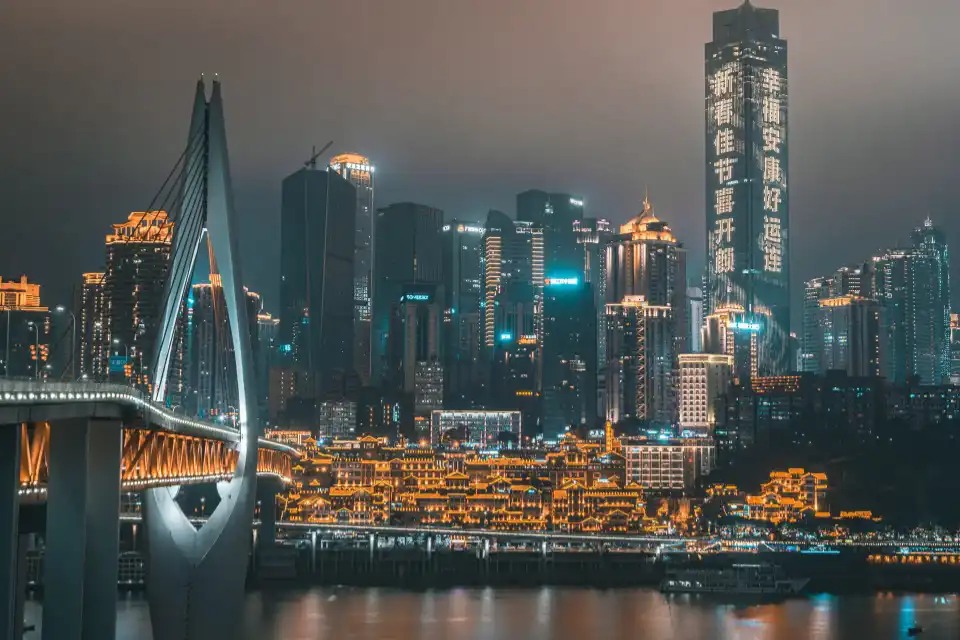
In the past, this city played a very important economic and political role during the Republic of China period, serving as the capital of resistance during the Second Sino-Japanese War. By 1997, the city was reconstructed to become a key economic region, developing the central and western regions of China. Although not located as close to the sea as the other three regions, Chongqing still plays an important role as the main production center and transportation center of the Yangtze River region.
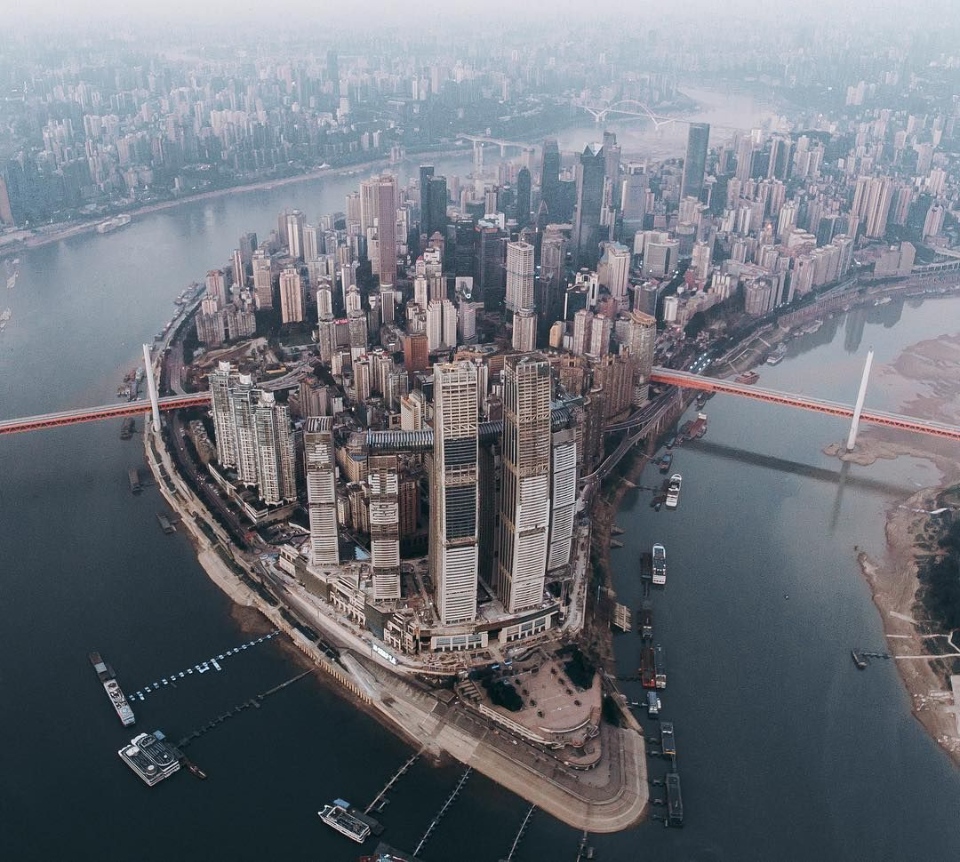
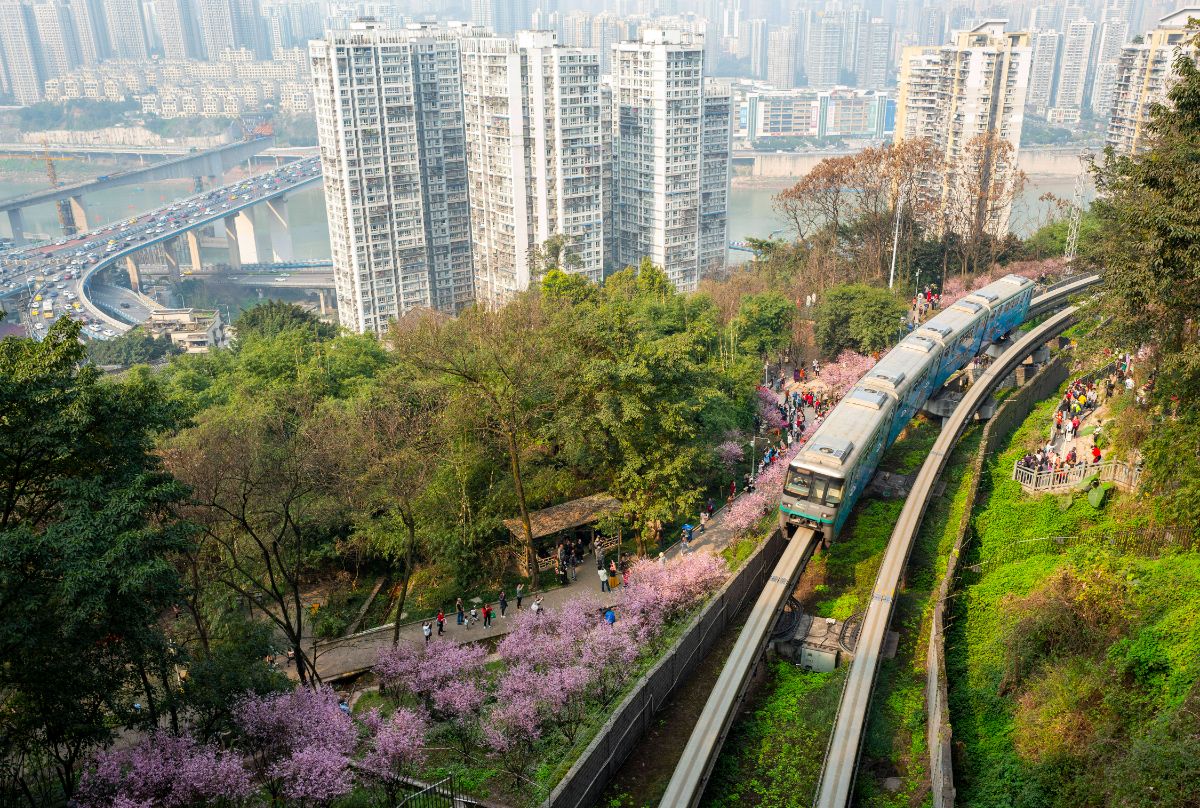
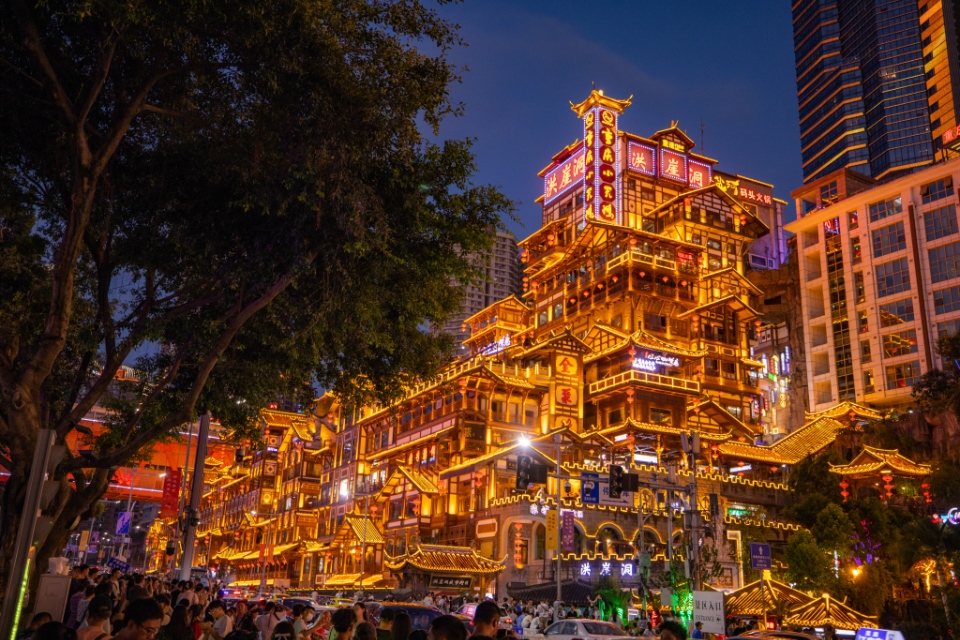
Despite its rapid economic development, Chongqing still preserves its historical relics and wonderful natural landscapes very well. Known as the mountain city, or fog city, Chongqing has countless impressive attractions that cannot be missed.
So, where to travel in Chongqing? Below are must-go, top places to visit in Chongqing you can refer to.
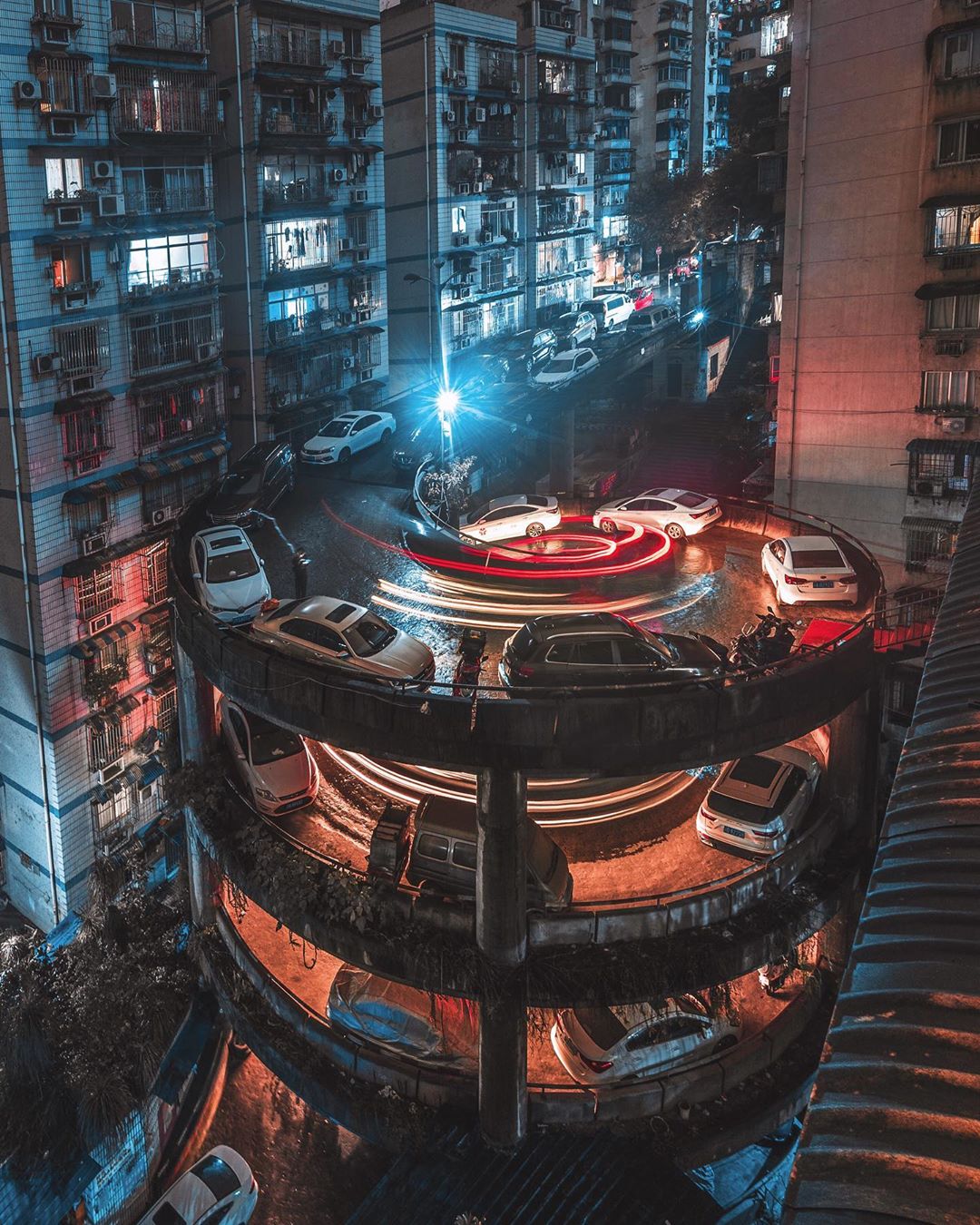
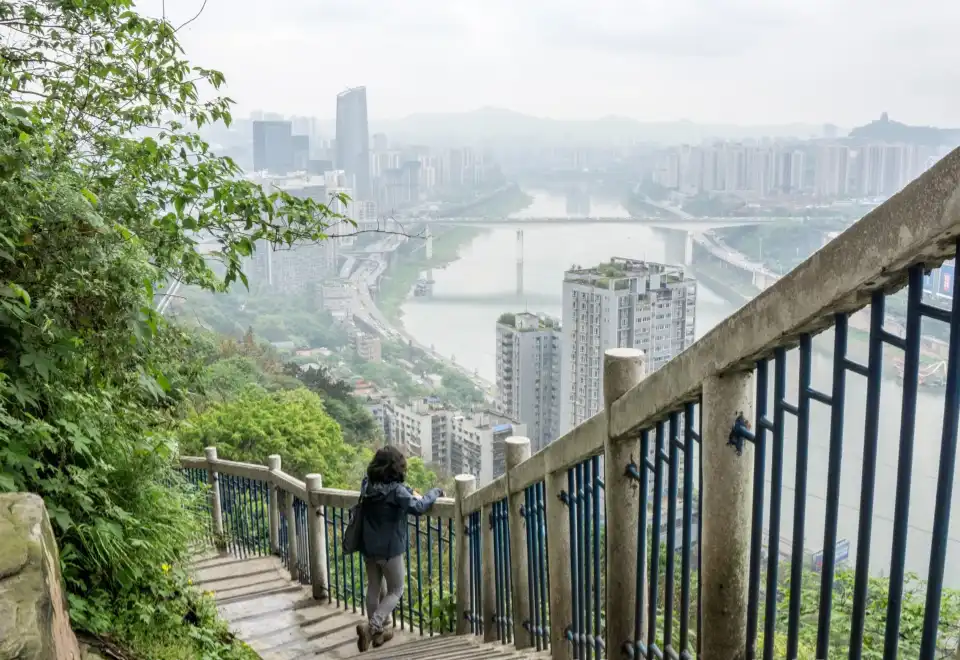
Dazu Rock Carvings (# best places to visit in chongqing)
Dazu District is located in the western suburbs of Chongqing city, world-famous as the “Hometown of stone carvings”. This is one of the best preserved Buddhist work in China, on the UNESCO world cultural heritage list.
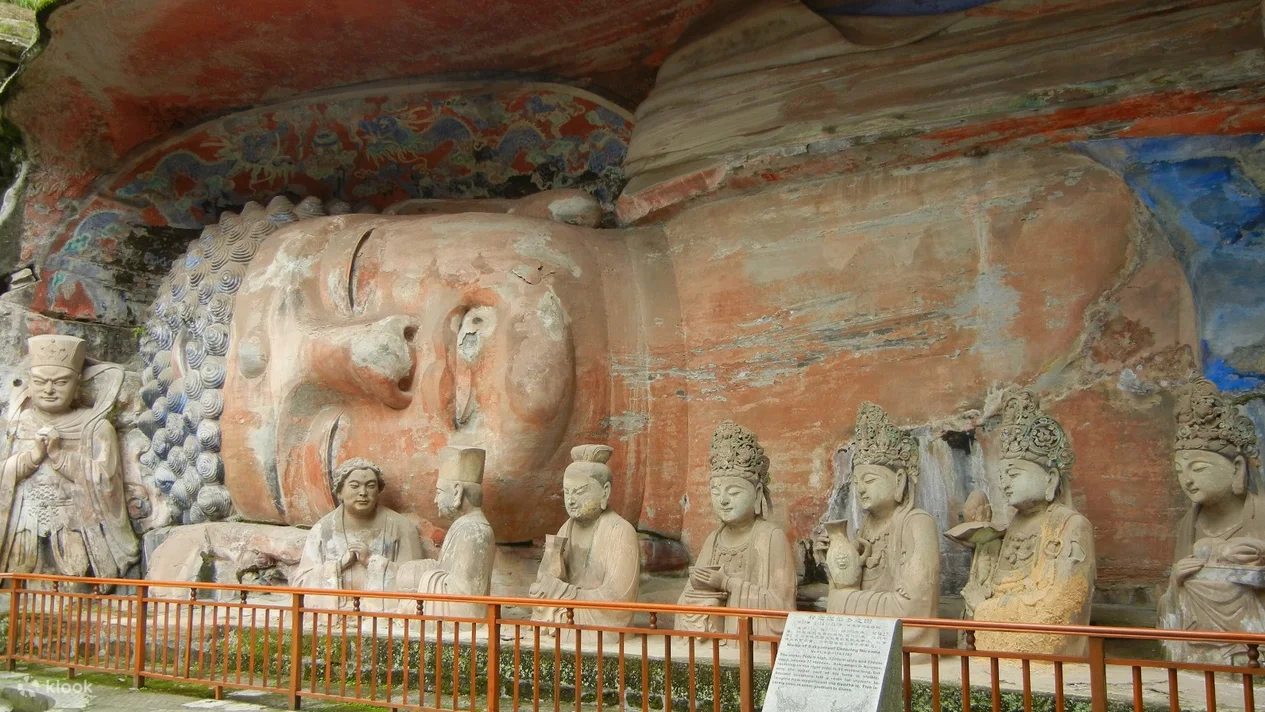
Traveling about 160km west of Chongqing, visitors will have the opportunity to admire more than 60,000 stone carvings mainly related to Buddhism scattered across 76 locations in Dazu district. However, the statues in the Beishan and Baodingshan hills are highly appreciated for both their art and their content. The art of Dazu stone carving appeared at the end of the Tang Dynasty (618-907) and flourished in the Song Dynasty (960-1127) representing an important chapter in the history of Chinese culture and religion.
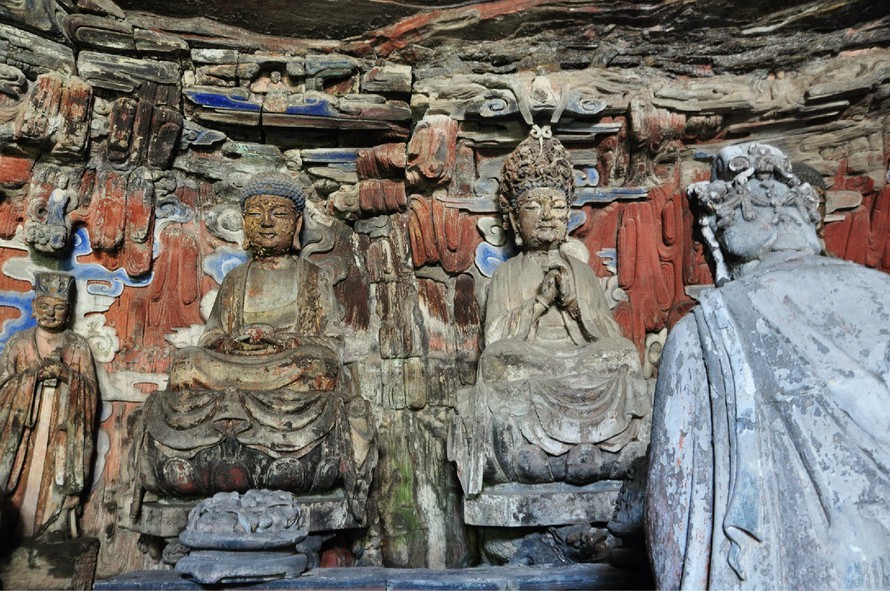
The most prominent attraction in Dazu is at Baodingshan Hill, 15km northeast of Dazu district center. The sculptures here were first carried out during the Southern Song Dynasty (1179). With a reclining Buddha statue in the center and smaller Buddha statues with many states surrounding it, this is considered the best preserved area with the highest artistic value.
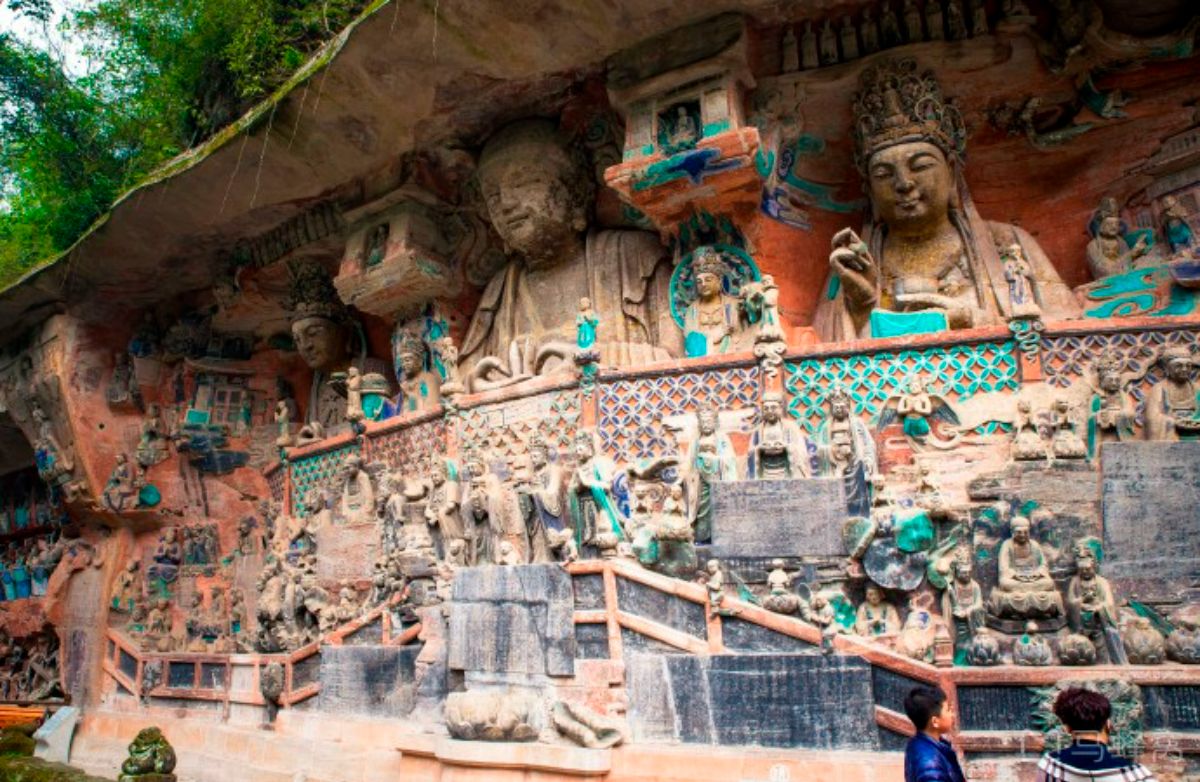
Another famous site is at Beishan Hill, 1.5km north of Dazu, with nearly 10,000 exquisitely carved works. The stone sculptures at Dazu were recognized by UNESCO as a world cultural heritage in 1999, with the assessment that “the diversity of themes, both secular and religious, has partly clarified daily life in China” during that historical period. It is a harmonious combination of Buddhism, Taoism and Confucianism.”
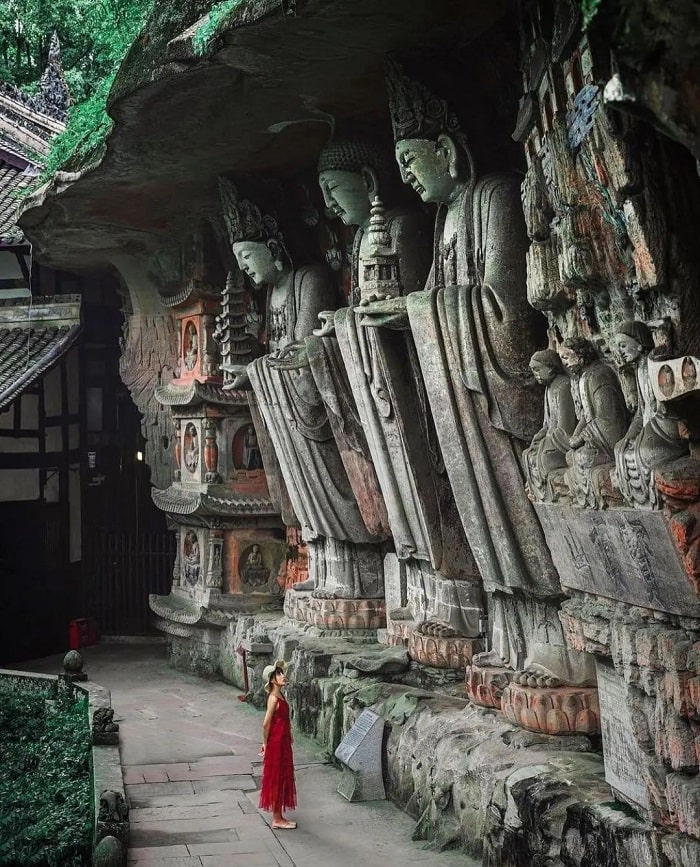
Among them, the most prominent are more than 50,000 statues and more than 100,000 ancient Chinese characters and scripts, Buddhist statues under the cultural eyes of the old dynasties, and even a statue of Confucius character is also carved in Dazu Rock Carvings.
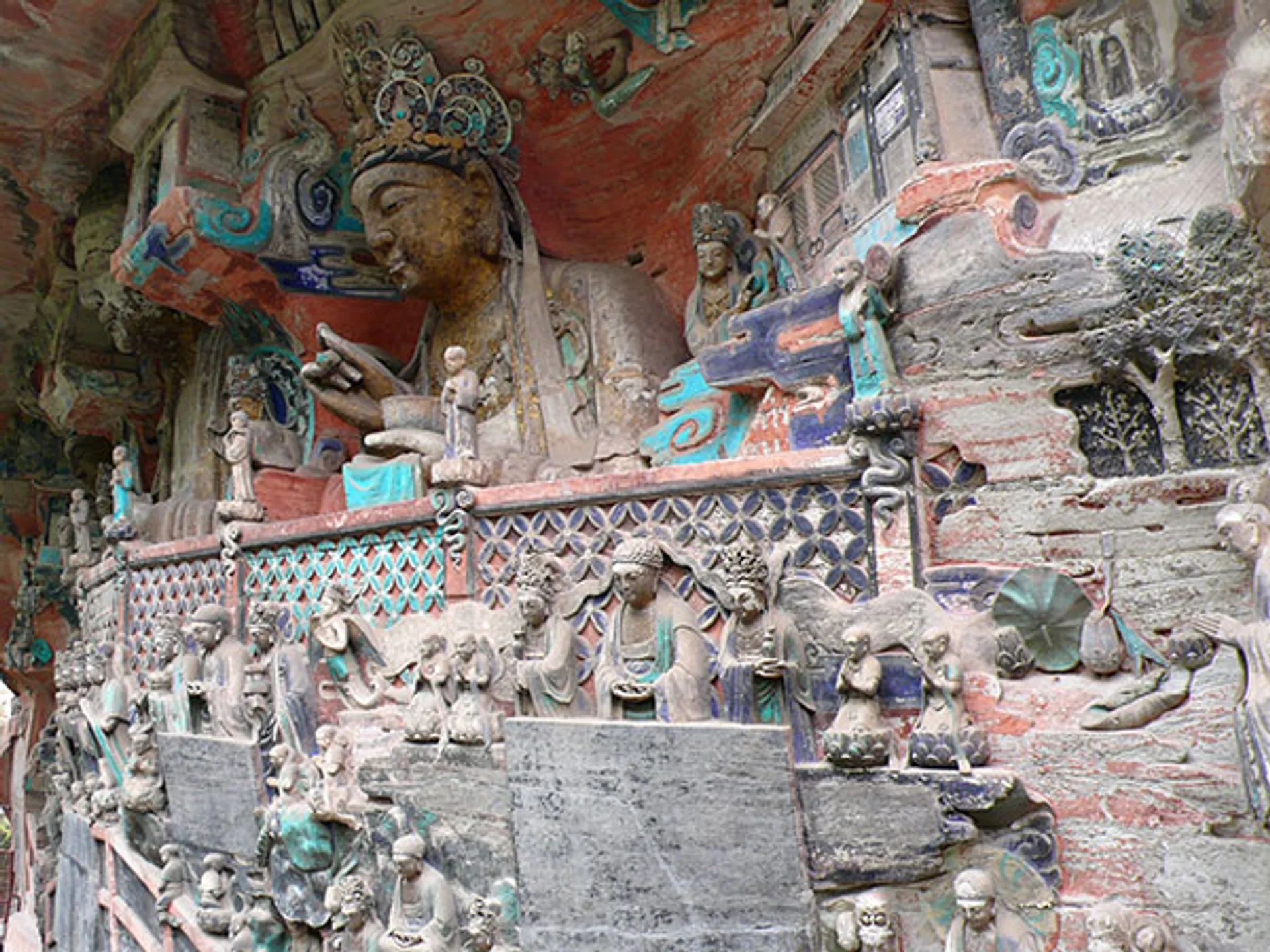
Entrance fee: 130 RMB
Opening hours: 9:00 a.m. to 4:00 p.m
Address: Dazu area, Dazu district, Chongqing
Stilwell Museum (# best places to visit in chongqing)
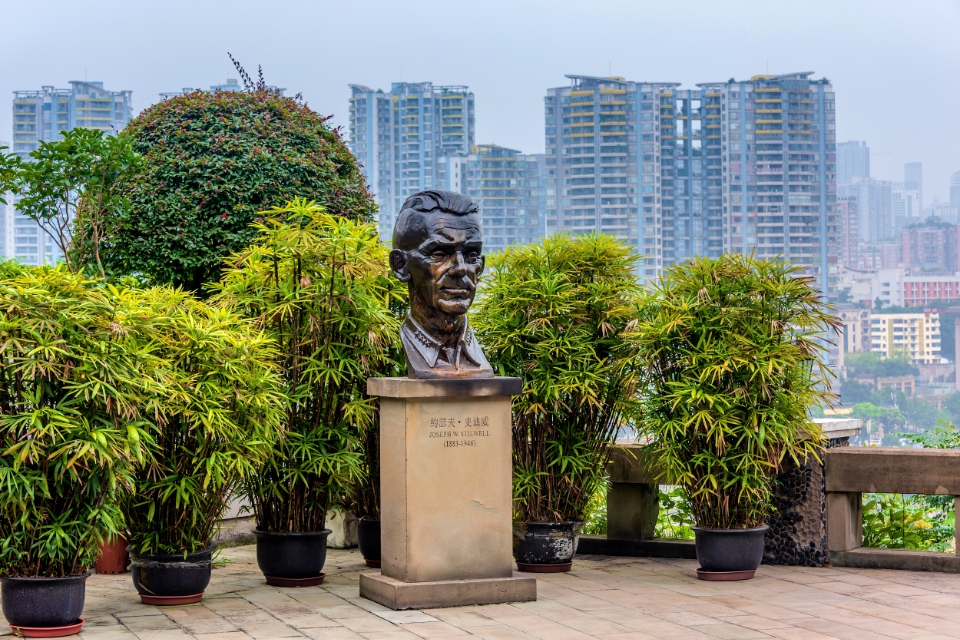
The General Joseph W. Stilwell Museum is located in the Yuzhong district of Chongqing. The entire museum area is up to 4,800 m2. Since the museum opened to the public in 1991, tens of thousands of domestic and foreign visitors have visited, including scholars, students, U.S. ambassadors, veterans, and government officials. governance, military.
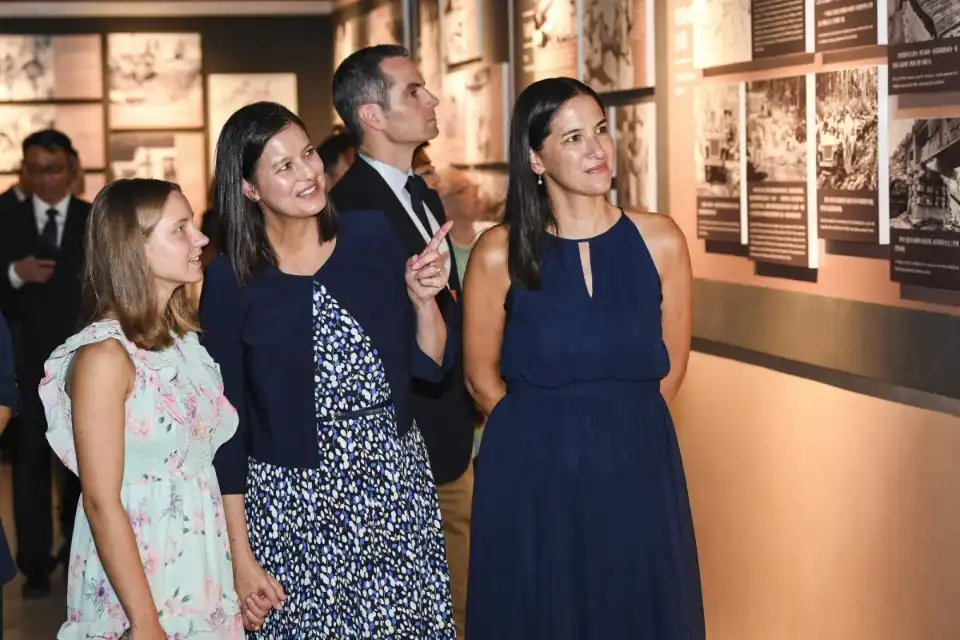
The most valuable collection in the General Joseph W. Stilwell Museum is four U.S. military vehicles that served during World War II. These vehicles were donated by a Chinese American named Tan Yongzhao in 2007. According to him, these four vehicles were used in military operations by US forces to assist China in the years of war.
Address: HG6V+FCX, Jialingjiangbinjiang Rd, 大溪沟 Yuzhong District, Chongqing, China, 400015
Qutang Gorge (# where to go in chongqing)
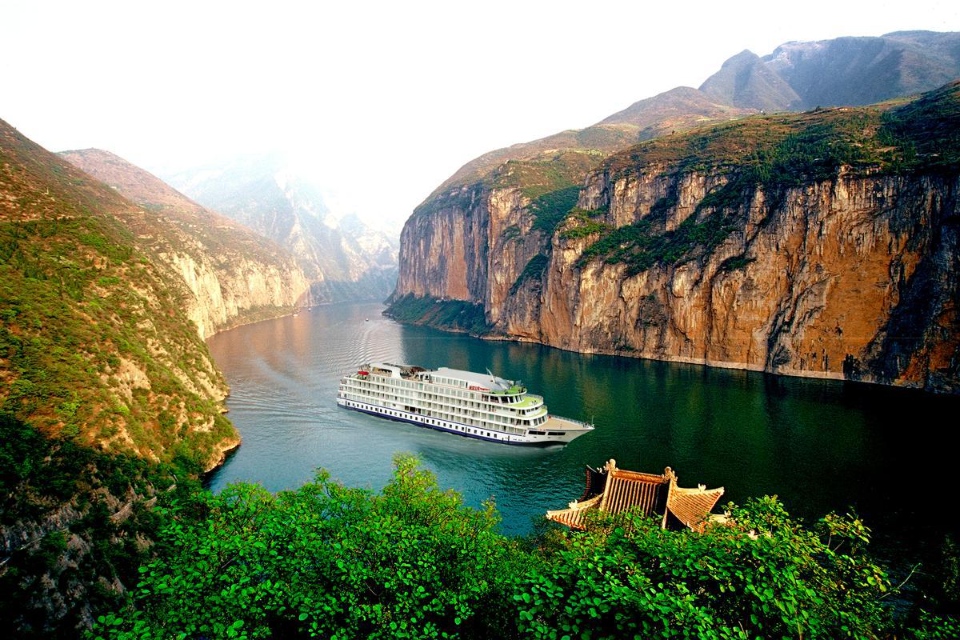
As the shortest gorge among the three orges of the Yangtze River, Qutang Gorge is 8km long, and is the natural landscape that leaves the most impression on visitors when visiting this area. The gorge begins at White Emperor City in the west and ends at Daxi Stream in the east, creating a scene that is both majestic and poetic and passes by many famous relics such as the Meng Liang Stairway of the Tang Dynasty, Old Road, Chalk Wall and caves in Bellows Gorge.
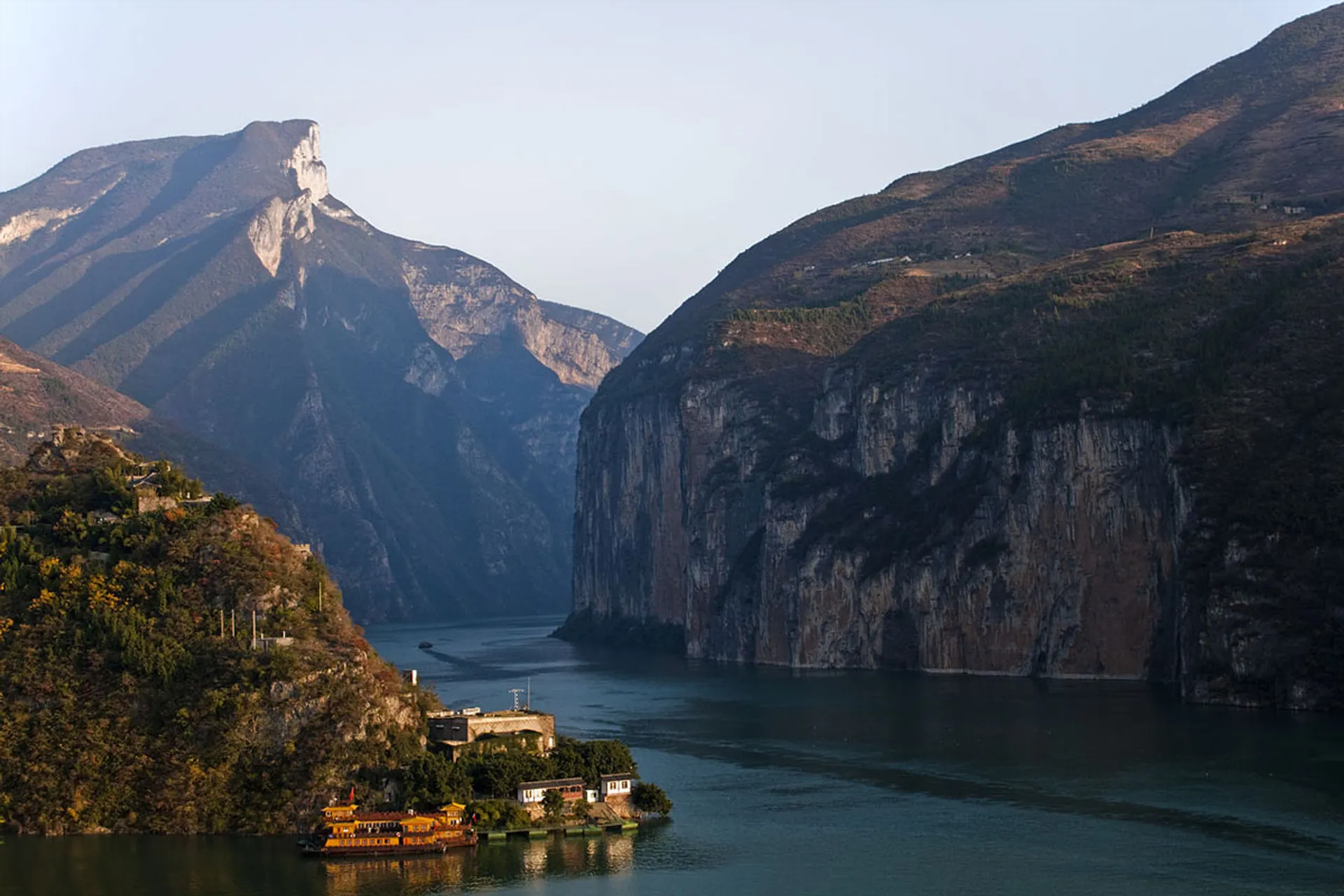
The Yangtze River flowing through Qutang Gorge is only about 100 to 200 meters narrow, with the narrowest section no more than a few dozen meters, while the gorge on both sides has sections as high as 1000-1500 meters. The rushing water flowing between two steep cliffs creates a majestic and surprisingly magnificent scene.
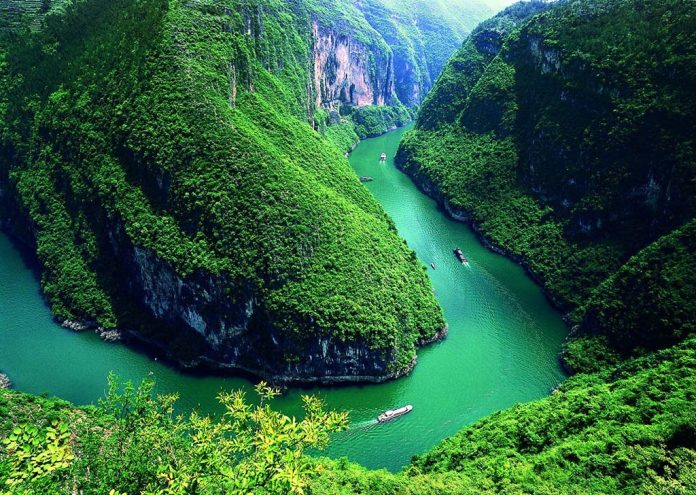
Although Qutang Gorge is the furthest upstream of the gorge affected by the Three Gorges Dam, the impact of dam construction on this gorge is particularly heavy. Many of the most famous and historically significant locations in Qutang Gorge are located near the water level. In fact, even without dams built, those locations are still very close to the water level during the rainy season. Currently, water has covered many important historical sites in this area.
Entrance fee: free
Address: Daxi town, Wushan district, White Emperor city, Chongqing
Ciqikou Old Town (# where to go in chongqing)
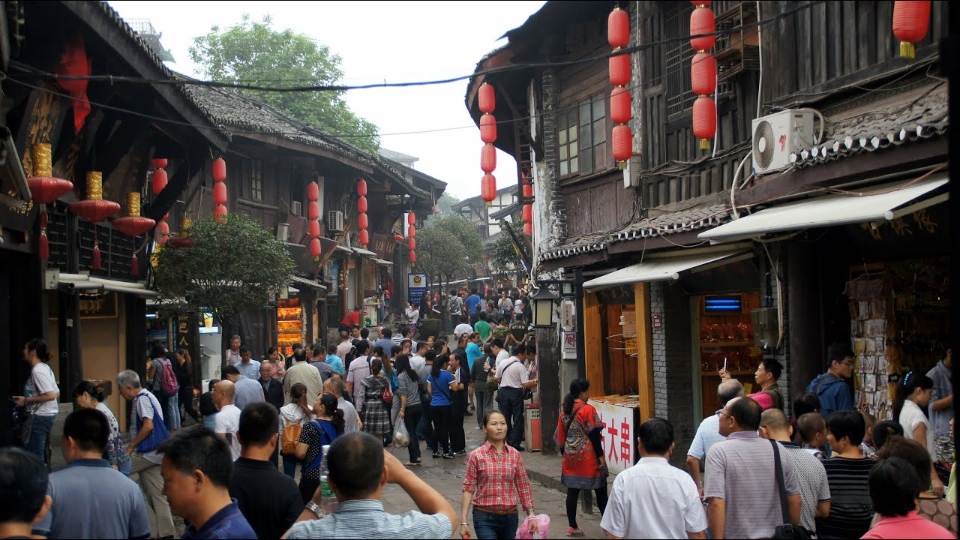
Ciqikou is a well-preserved ancient town, about an hour’s drive from Chongqing city center. This town was built during the Ming and Qing dynasties, originally named Longyin. However, around 1918, the porcelain trade here began to prosper, so people gradually used the name Ciqikou meaning “porcelain port” instead of the old name and also representing the main profession of this town.

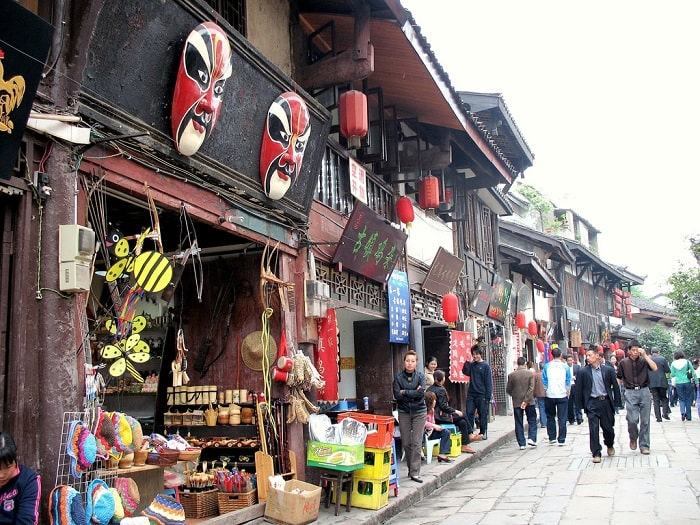
With a history of more than 1,800 years, Ciqikou old town has many characteristics of traditional culture typical of the mountains. This was a bustling area in the past with 2 main streets, both of which are currently busy trading areas. Now, the town has a total of 12 streets and teahouses play an important role in local culture.
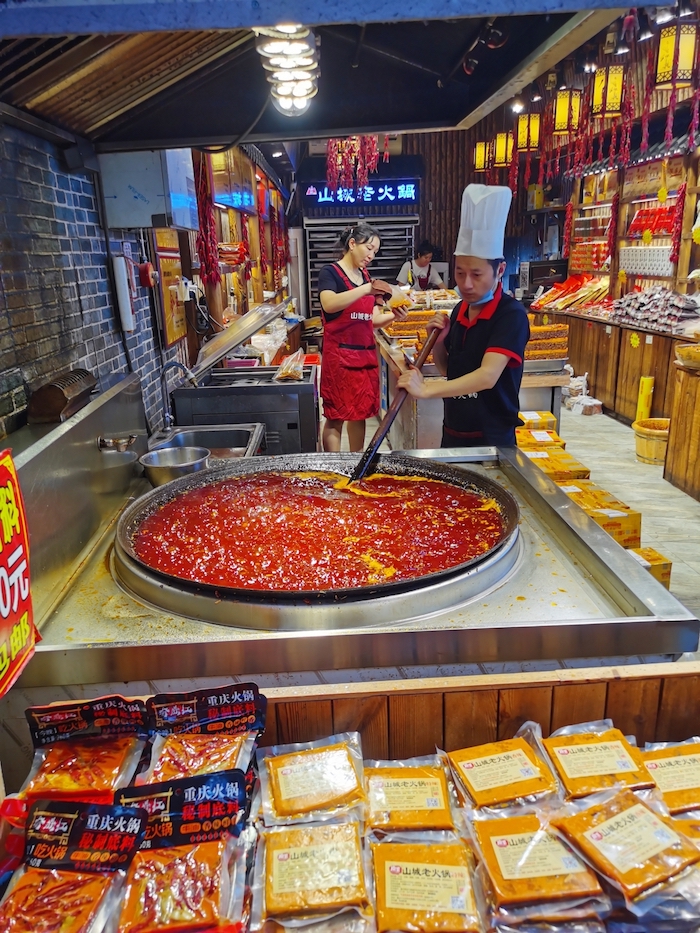
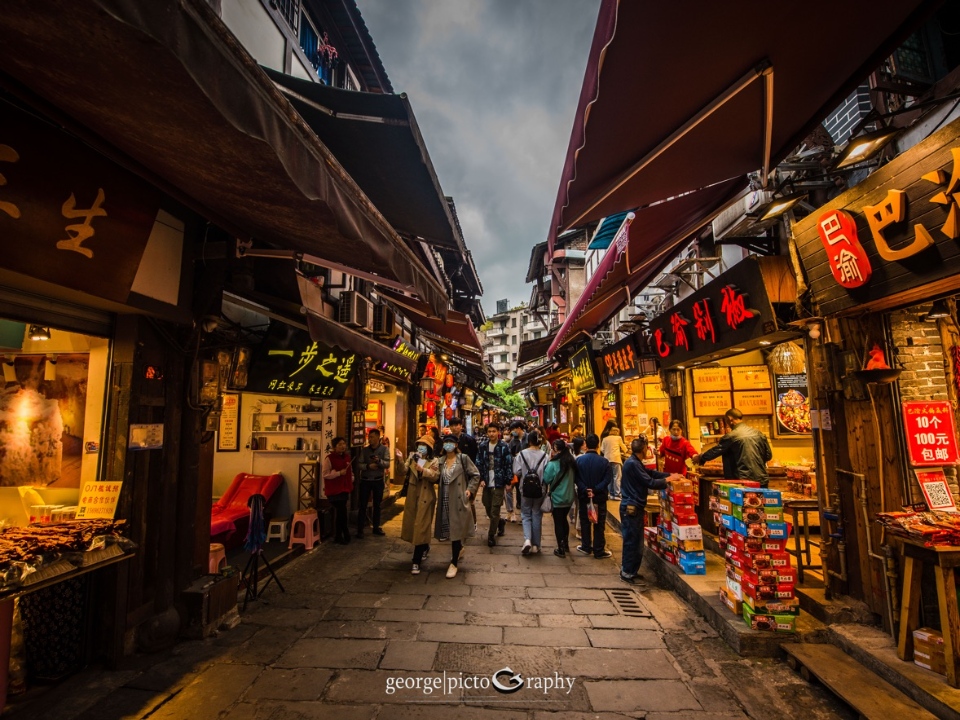
Coming to Ciqikou, visitors not only have the opportunity to admire a typical mountainous ancient town, but also have the opportunity to experience and shop for ceramic products, handicrafts and especially teas – a specialty that represents the region’s culture before Chongqing became the modern, developed land as it is today.
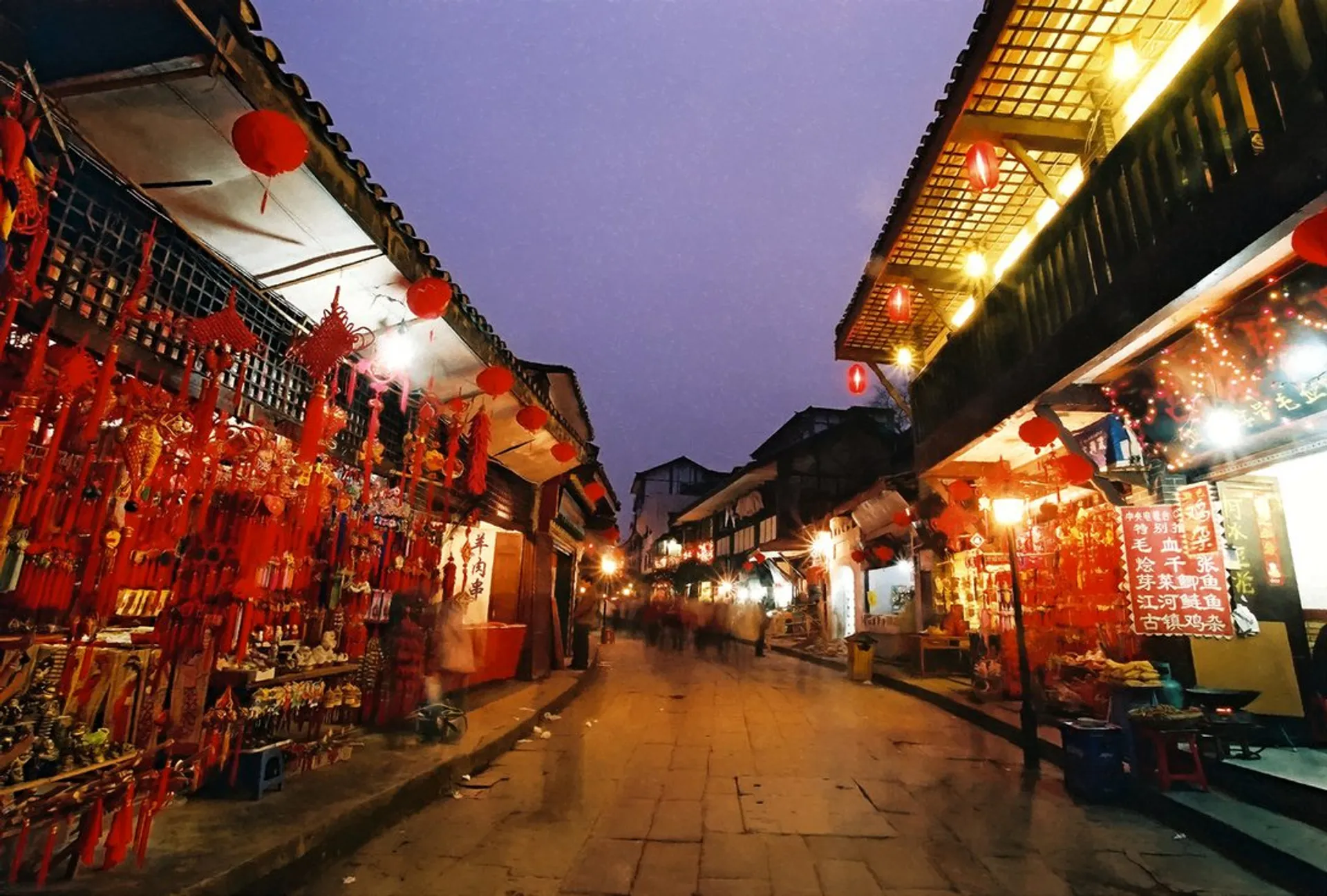
Most houses in Ci Qi Kou are 2 to 3 floors, entirely made of bamboo and wood. In front of each house’s door hangs red lanterns, looking like those from television dramas or ancient paintings full of tranquility.
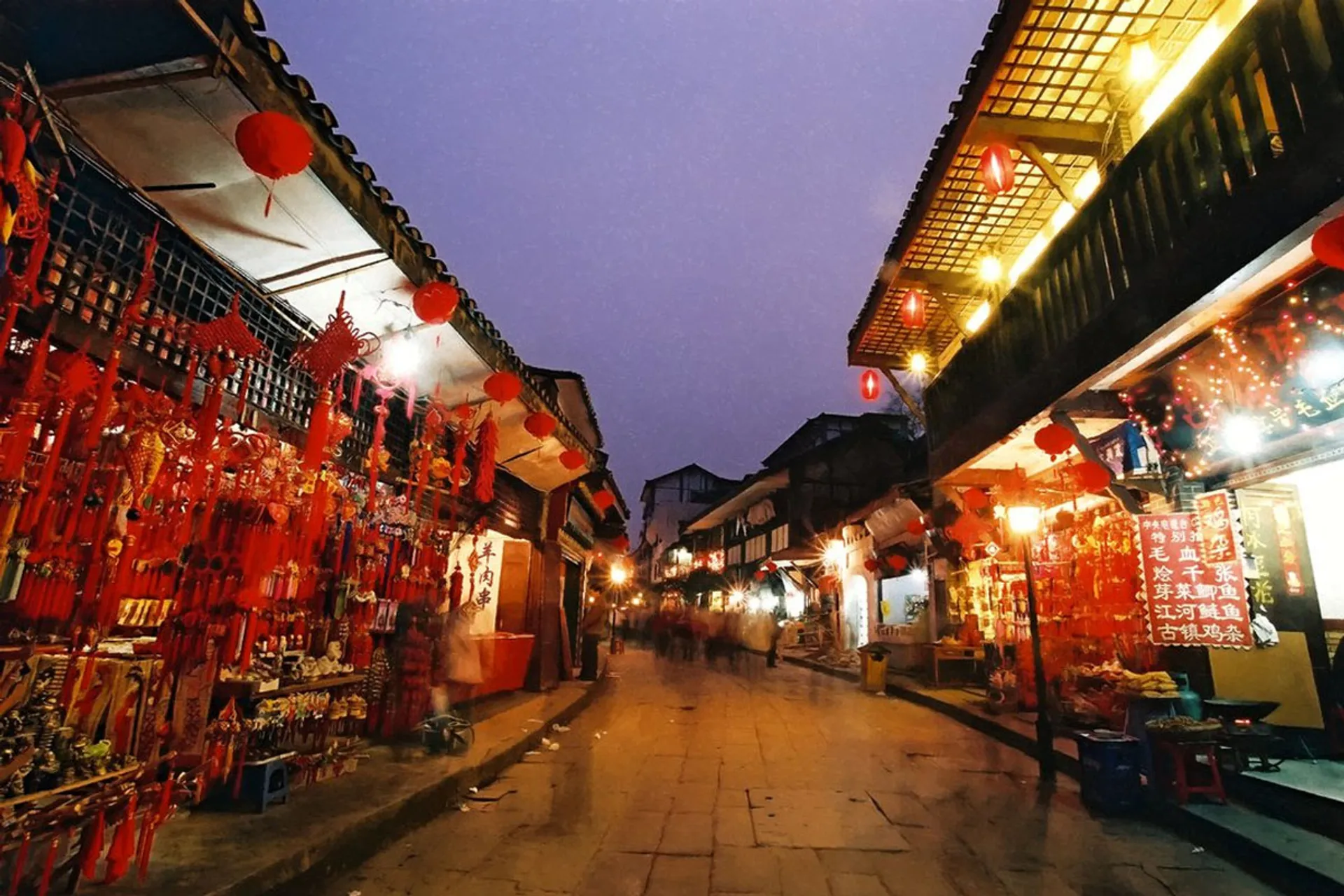
Address: Ciqikou town, Shapingba district, Chongqing
Yangtze River (# where to go in chongqing)
The Yangtze River, is China’s longest river with a total length of nearly 4,000 miles. Compared to the world, the Yangtze River ranks third in terms of “length”, after the Nile River in Egypt and the Amazon River in South America.
The river’s length spans eleven provinces and cities from west to east, including Qinghai, Tibet, Sichuan, Yunnan, Chongqing, Hubei, Hunan, Jiangxi, Anhui, Jiangsu and Shanghai, and the river eventually flows into the South China Sea.
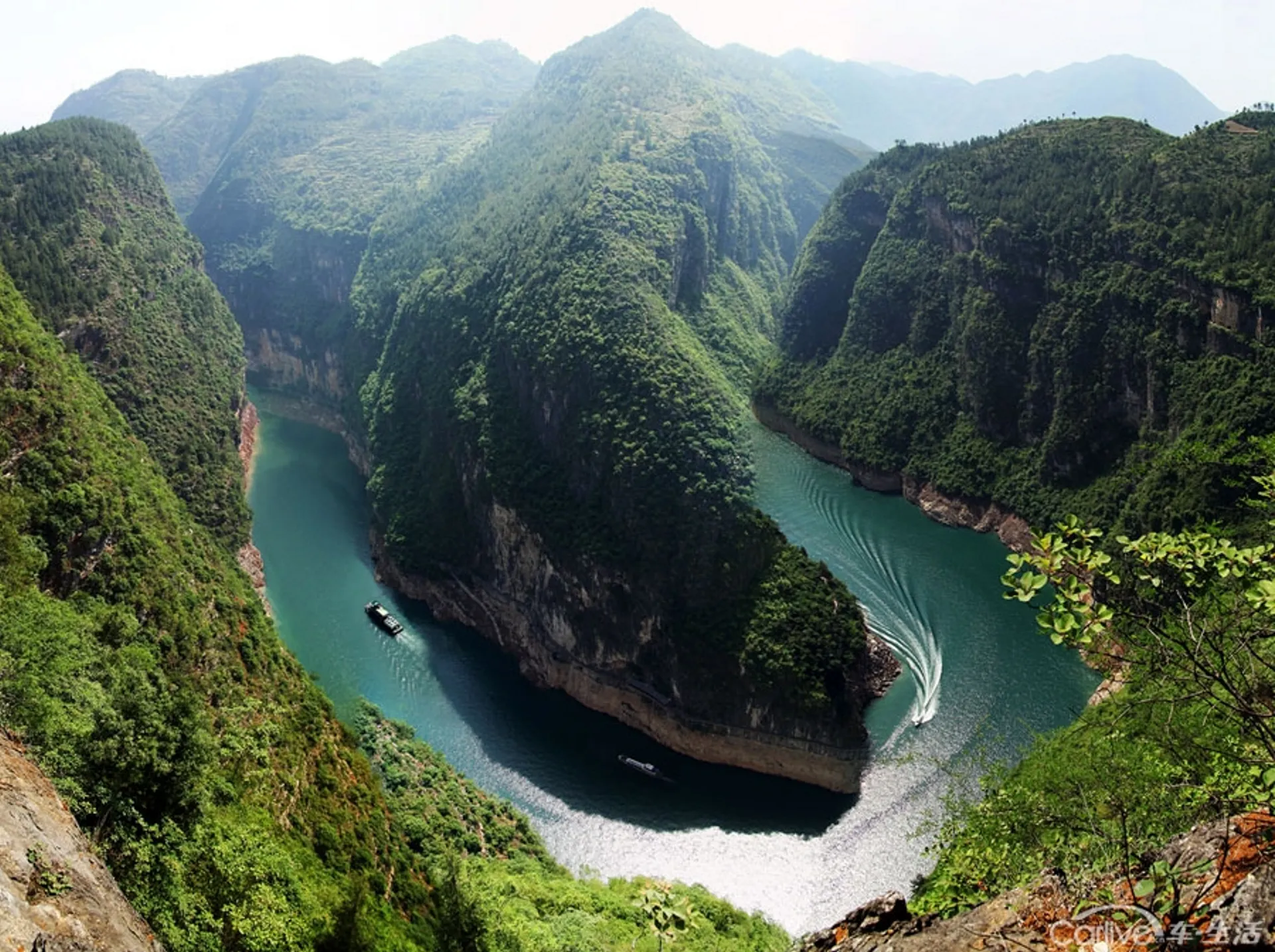
Similar to Egypt’s culture of the Nile River, the Chinese also have an ancient culture associated with the Yangtze River. We don’t know how many thousands of years old the river is, we only know that all of China’s upheaval events happened under the eyes of this river, the river that brings fish, shrimp, and prosperity to the country.
The Yangtze River Cruise will be the highlight of your visit to Chongqing. At Chaotianmen port, there are quite a few boats docked there, a few to transport goods while the rest serve tourists traveling along the river (the trip lasts from 3 to 8 days).
Black Mountain Valley
Black Mountain Valley has a total area of 103km2, where green forest coverage is up to 97% – an extremely attractive ecotourism destination for tourists.
The characteristic of Black Mountain Valley is that it has many high mountain areas, deep valleys, large waterfalls, and is also home to countless rare flora and fauna species. Thanks to that, Black Valley becomes a great place to travel and explore such as climbing, camping, hunting and hiking.
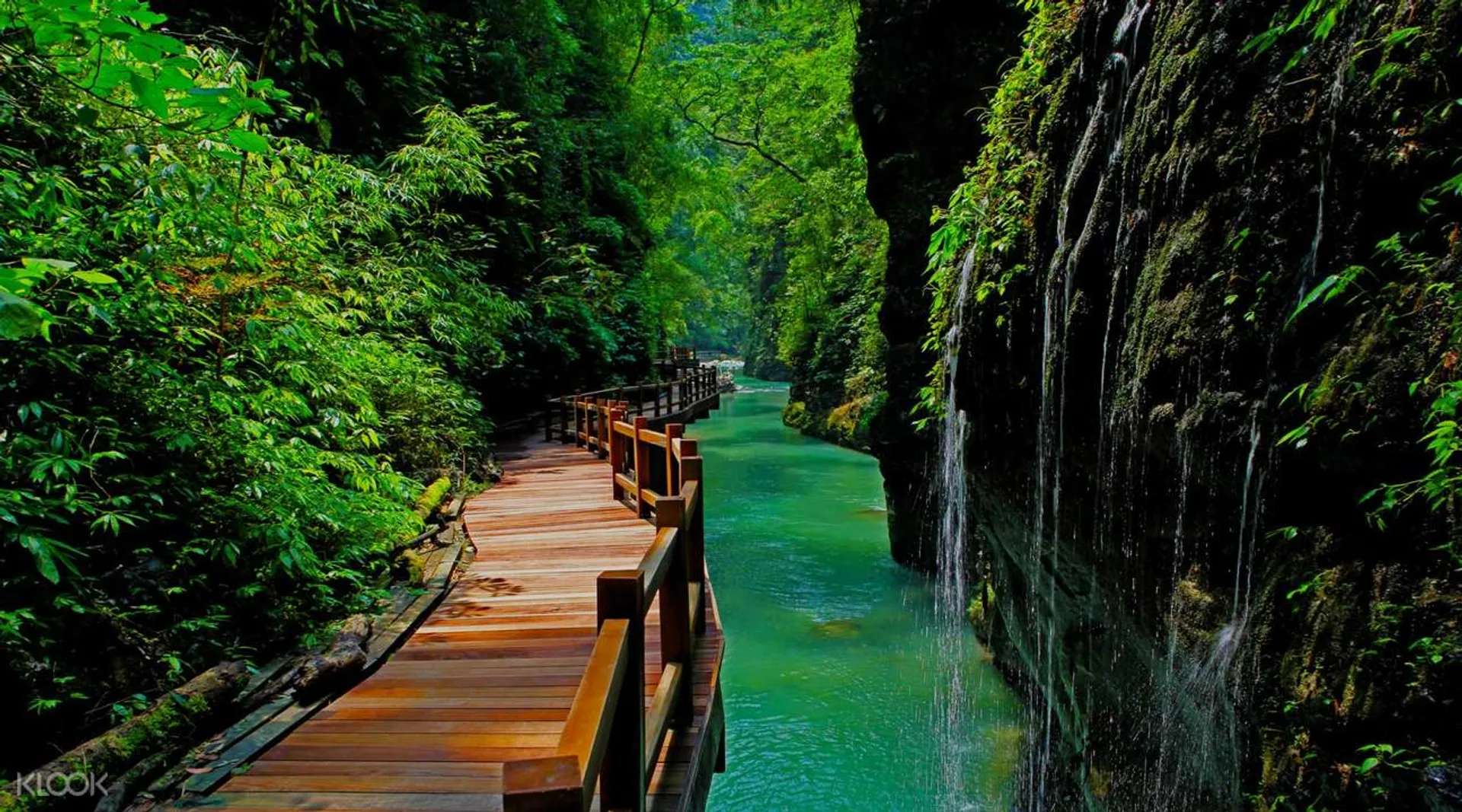
A little note: The best time to visit the Black Mountain Valley Scenic Area is from May to September, when the weather is cool and visitors can avoid the summer heat.
Some famous destinations in Black Mountain Valley include: Fish Leaping Gorge, Fish-Like Waterfall, Wansheng Stone Forest, Carp River Gorges.
Three Gorges Museum
Located opposite the Chongqing People’s Hall, the Three Gorges Museum is not only the largest monographic museum in China but also a conservation, research, and education project for cultural relics and the natural environment of Chongqing and the Three Gorges region. Built on an area of 42,500 square meters, the museum opened to visitors on June 18, 2005. This is the place to help visitors have an overview of the entire Three Gorges area using high technology on every side. In addition, the museum also has a 360-degree cinema showing the natural and social landscape of the entire Three Gorges area before the dam construction.
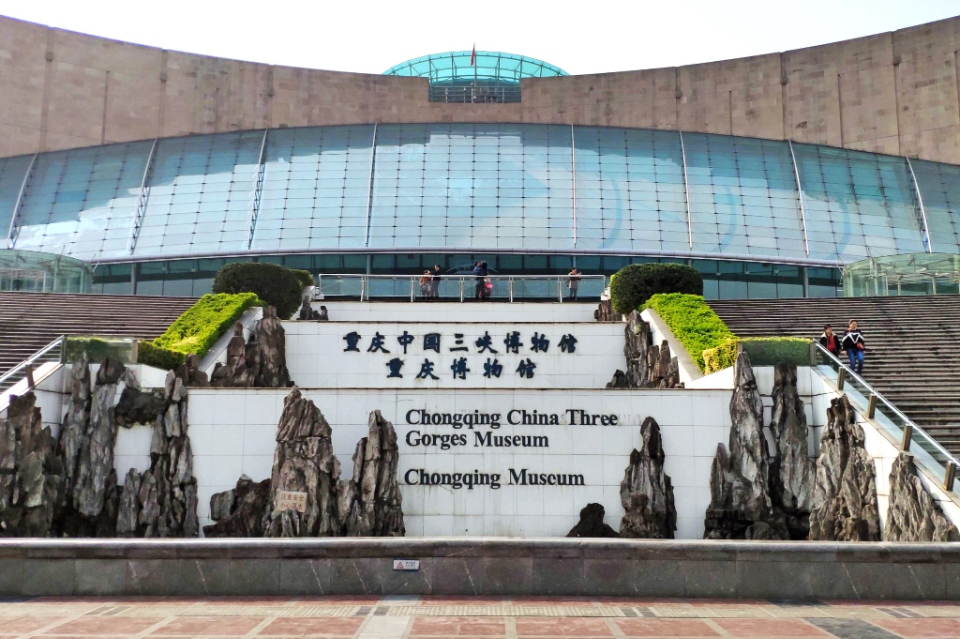
Opening hours: 9:00 a.m. to 5:00 p.m. (closed on Mondays)
Address: 236 Renmin Road, Daxigou, Yuzhong District
Liberation Stele
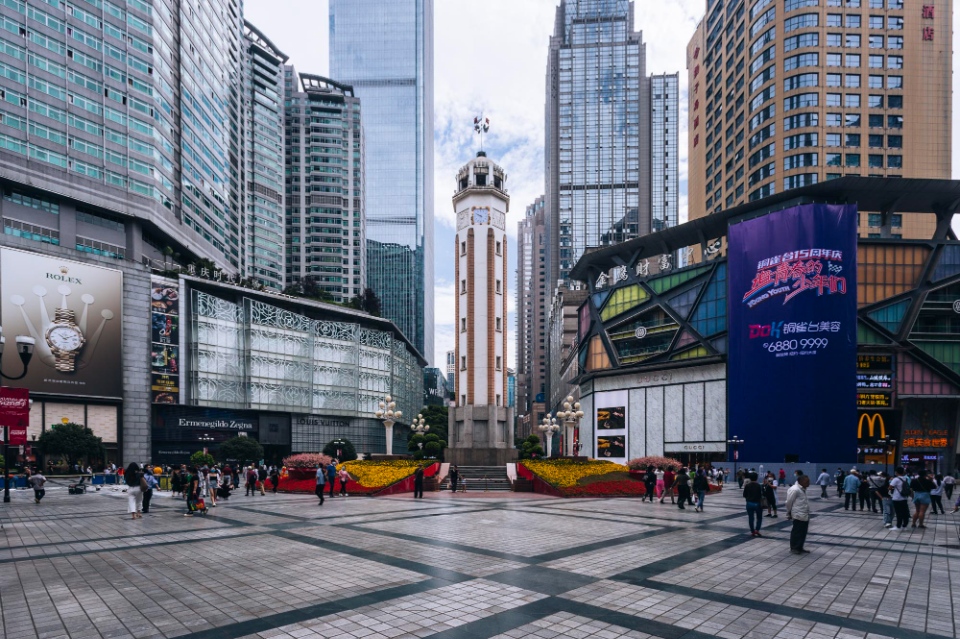
The People’s Liberation Monument is located in the center of Chongqing city, the most prosperous area, and is a symbol of civilization and a witness to the history of resistance in this city. This is a 27.5 meter high structure located at the intersection of Minquan, Minzu and Zourong roads of Yuzhong district. Looking down from above, the monument is almost covered in white, with large clocks pointing in all directions, and every hour the bells will ring echoing in the space.
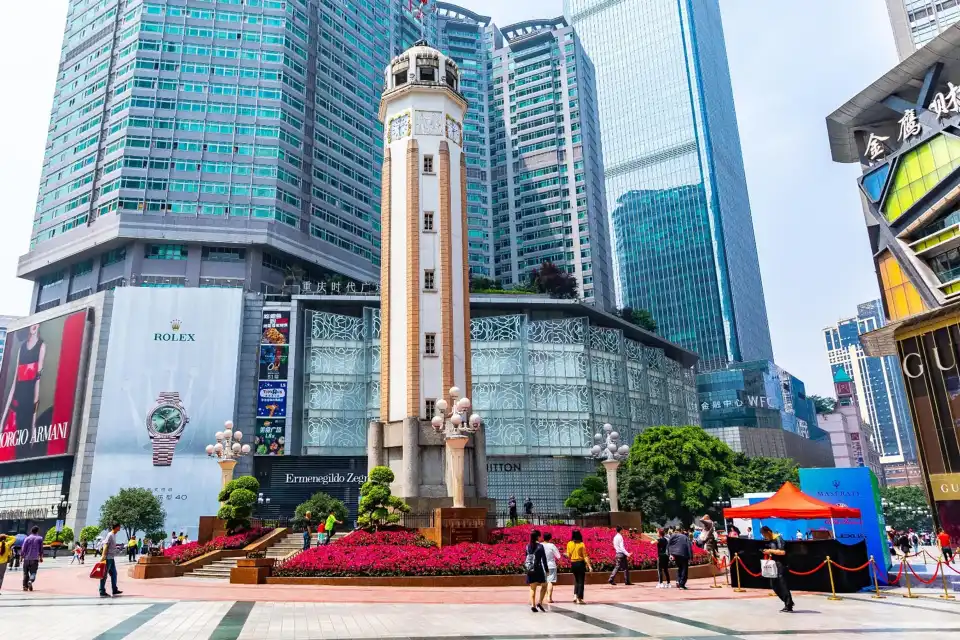
Located in the middle of a large pedestrian square, the Liberation Monument is considered the heart of Chongqing’s commercial district, surrounded by about 3,000 shops and offices, along with dozens of major shopping malls, many modern hotels as well as important business establishments. Besides, about 300 meters from the Monument is the largest food street in the city, attracting thousands of visitors every day. It can be said that this is the most modern and vibrant place in Chongqing city today.
Address: Minquan, Minzu, Zourong junction; Yuzhong district
Chongqing Zoo
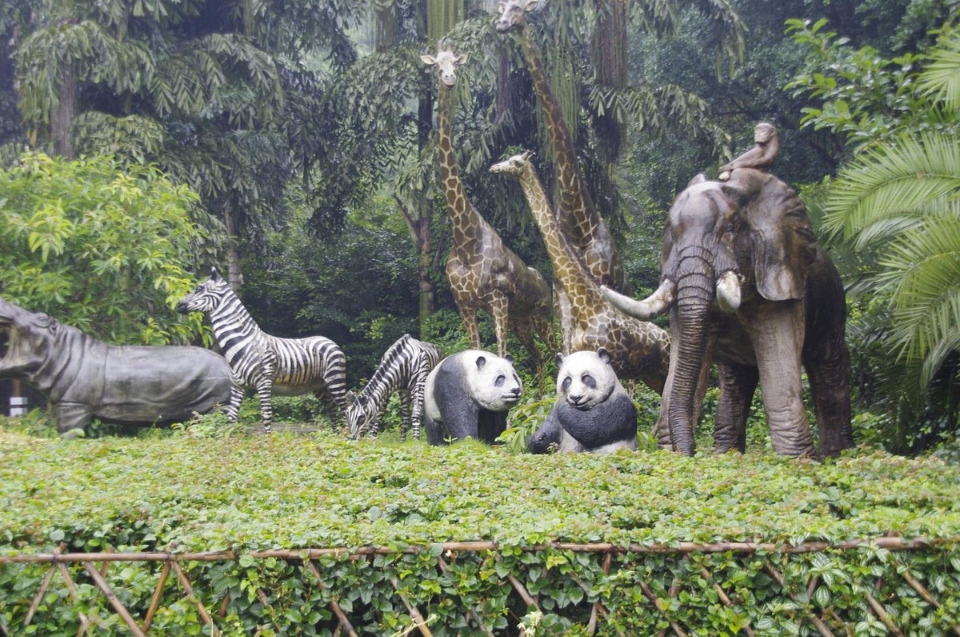
If you love China’s “national treasure” pandas, Chongqing Zoo is a place not to be missed when coming here. Built in 1953, Chongqing Zoo covers an area of 45 hectares, making it the largest urban zoo in China. This is the residence of about 230 species of rare wild animals. The most prominent one is the Panda House area with an area of about 2 hectares.
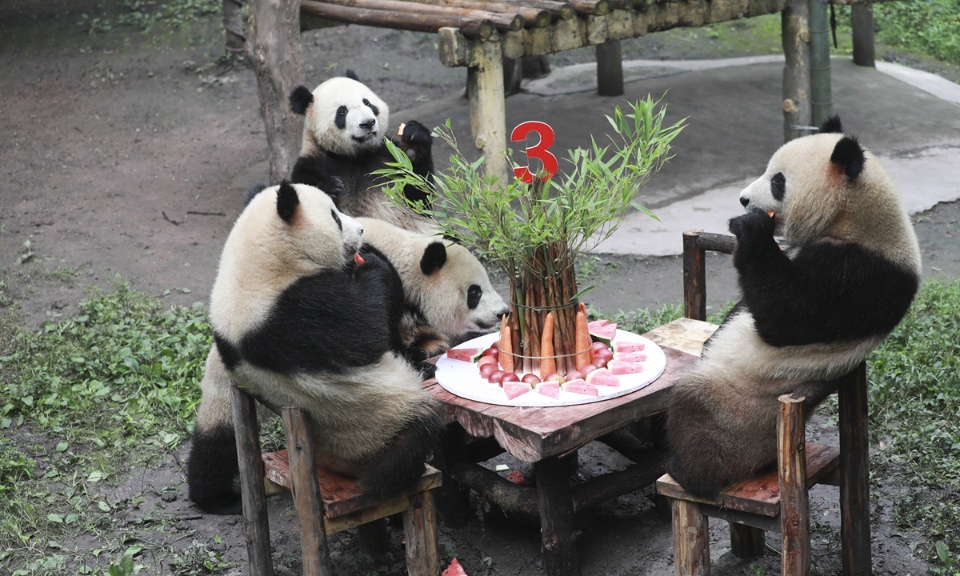
The zoo serves as a conservation as well as breeding area for many types of pandas, including giant pandas, small pandas, South China tigers and several other endangered species. In recent years, the zoo has expanded and added many new animal species such as antelopes, elephants, giraffes, some birds… The panda breeding area is always the most attraction at Chongqing Zoo. Renovated to resemble a natural environment, visitors here will have the opportunity to admire pandas at close range and their adorable daily activities. This location attracts about millions of visitors each year.
Opening hours: 7:00 a.m. to 6:00 p.m
Ticket price: 20 RMB
Address: 25 Xijiao Road, Jiulongpo District, Chongqing
Wulong Karst Geological Park
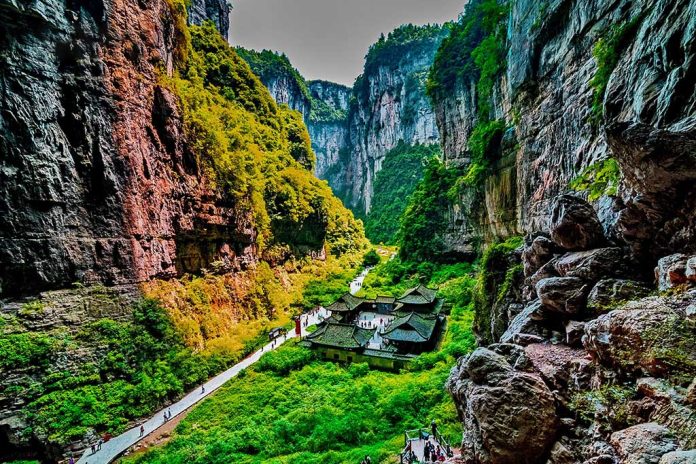
Located in the southeast of Chongqing city, Wulong Geopark is not only famous for its majestic natural scenery of limestone mountains but also as the setting of the movie Yellow Armor by famous director Zhang Yimou. Then, in 2014, the movie Transformers: Age of Extinction also had many scenes filmed here, making this scenic area even more famous.

Most of the attractions in Wulong are natural landscapes and several of them have been recognized by UNESCO as World Natural Heritage sites. The four most attractive tourist attractions when coming here include: Three Natural Bridges – three dome-shaped natural stone bridges; Furong cave; Qingkou Tiankeng; Longshuixia Gap and many other majestic natural landscapes that visitors can explore here.
Opening hours: 9:00 a.m. to 4:00 p.m
Ticket price: 135 RMB (including shuttle)
Address: Wulong District, Chongqing
Hongyadong Cave
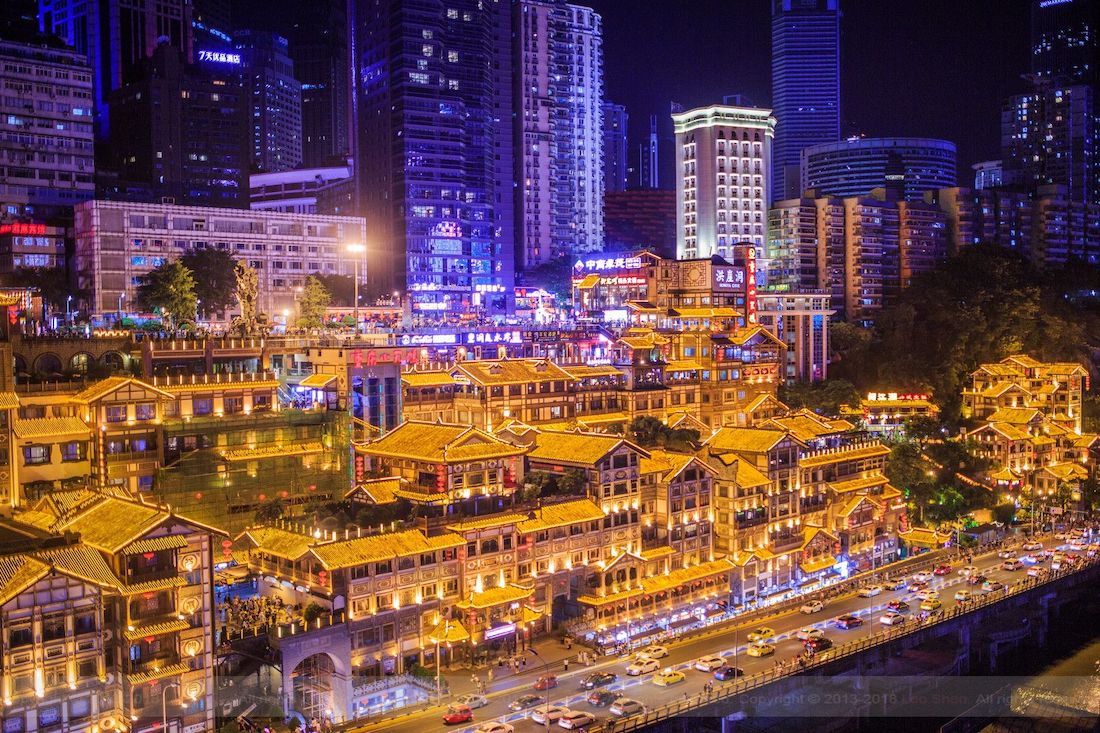
This area currently has a large-scale stilt house complex built along a steep cliff on the banks of the Jialing River. It has become a popular destination for tourists to experience Bayu culture – a Chinese ethnic culture, view the river and taste delicious food. The beautiful night view is a highlight and should not be missed.
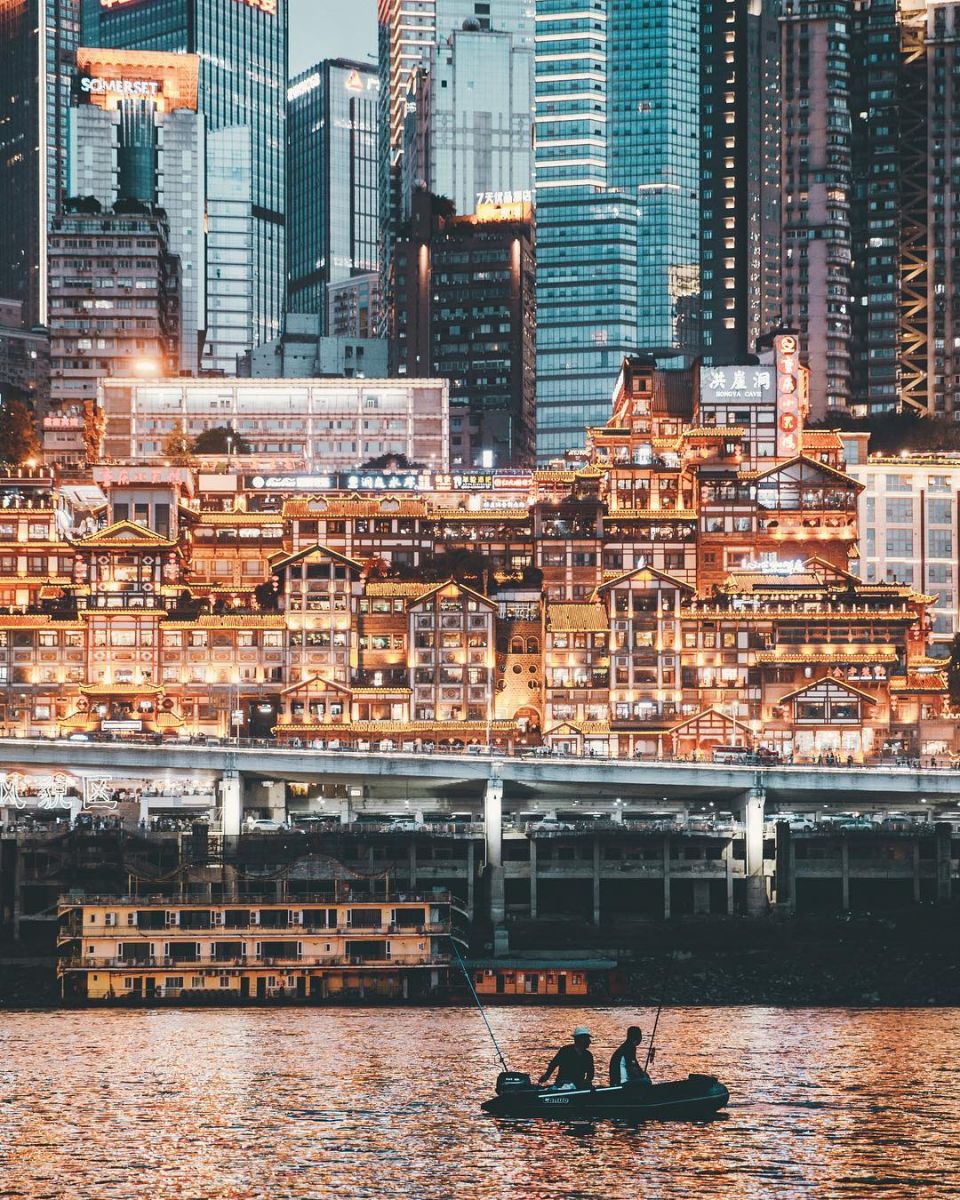

Hongyadong has an 11-story, 75-meter-high stilt house located on a steep cliff. It is popular with tourists because it has a similar appearance to a building in Spirited Away – a masterpiece by a famous Japanese manga artist, Hayao Miyazaki. The amazing thing is that the 1st floor and 11th floor can be accessed by two different paths. Guests can take the elevator to each floor, where different bars, cafes and restaurants are arranged. Visitors can also see the iconic Hongya Dripping on the 2nd floor, which is a small waterfall cascading down the cliff.
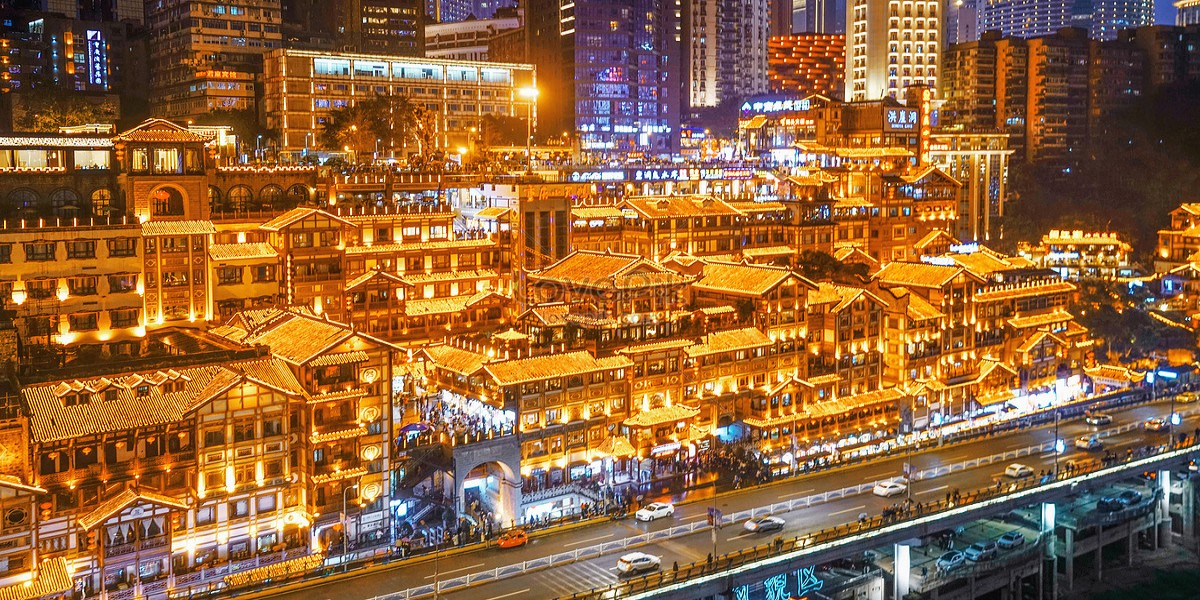
The night view of Hongyadong is a highlight and a unique feature of Chongqing. When dusk falls, warm lamps and lanterns light up the stilt house. Along with its reflection on the water, this shining complex resembles a dreamlike pavilion floating among towering skyscrapers. Visitors can view the beautiful night scene from different angles.
Chongqing People’s Great Hall
Chongqing People’s Great Hall, also known as Chongqing People’s Auditorium, is located in downtown Chongqing, China. This is a large ceremony hall, and is the venue for political meetings and national cultural events. The Great Hall of the People of Chongqing is considered one of the symbolic architectural works of Chongqing.
The Chongqing Great Hall of the People was built in June 1951 and completed in April 1954 with a total height of 65 meters. This architectural work is a complex consisting of a hall and three buildings connected to each other to the east, south and north. This structure is 16.3 acres (about 6.6 hectares) in area, of which the hall occupies 4.6 acres (about 1.9 hectares). The hall is 213 feet high (about 65 meters) and can accommodate more than 4,000 people.
Chongqing People’s Great Hall is surrounded by rows of green trees. The blue glass dome and bright red pillars create an interesting contrast, making the Great Hall of the People more beautiful and outstanding especially at night. Approaching the building, you will see intricately carved pillars. In addition, the Great Hall of the People also includes a reception room, entertainment room and large banquet room. To date, the Chongqing Great Hall of the People has welcomed more than a hundred leaders of China and government officials of many other countries around the world. Today, this place also operates as a theater.
In addition to the impressive places we just introduced, Chongqing city also has many interesting destinations waiting for you to explore. This large riverside port city not only has a booming economy, but also has countless majestic natural landscapes especially for nature-loving tourists.
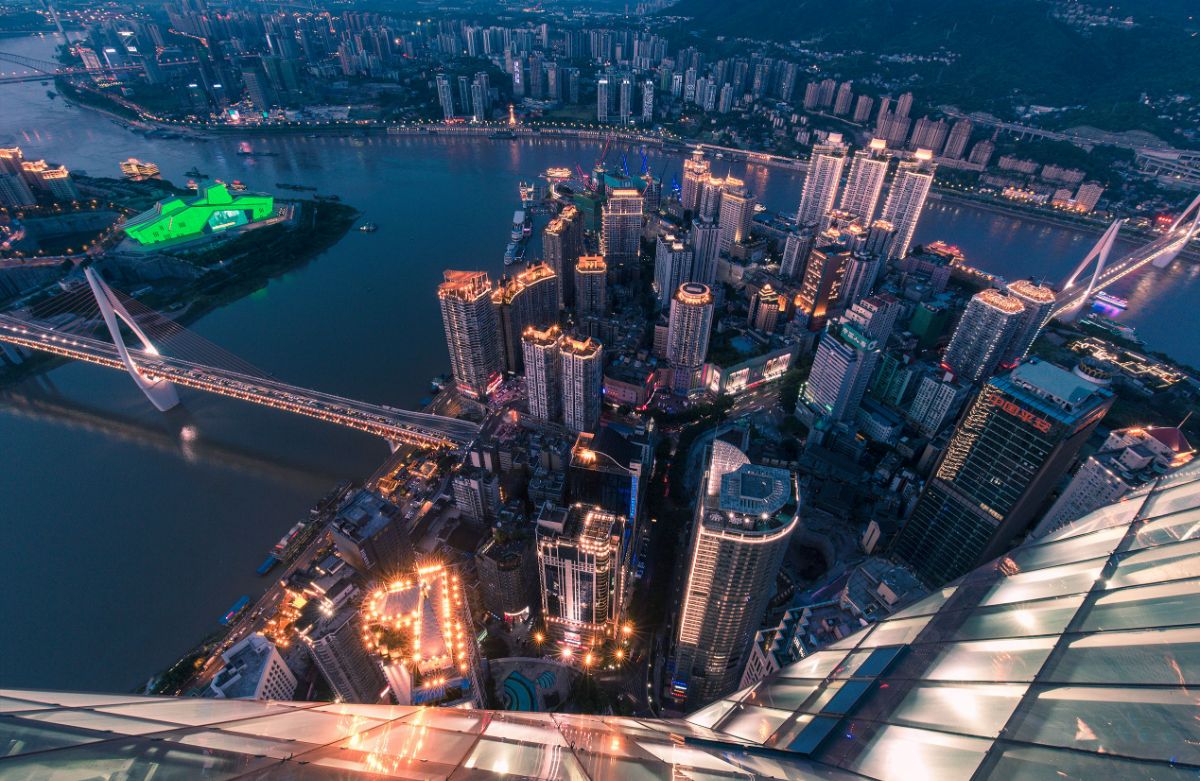
Some best day tours, trips, activities and transfer services, tickets in, from and to Chongqing you can refer to
- Shenlong Gorge Scenic Area Ticket
- Simian Shan Scenic Area Ticket in Chongqing
- Jinfo Mountain North Slope Scenic Area Ticket in Chongqing Three Little Gorges Combo Ticket
- Dazu Rock Carvings Ticket with Round Trip Transfers in Chongqing
- Chongqing Ciqikou, Secret Viewing Platform, and Yangtze River Cable Half Day Tour
- Chongqing Wulong Scenic Area Attractions Ticket with Round Trip Shared Transfer
- Chongqing Dazu Rock Carvings Museum Day Tour
- Chongqing Hongyadong, Beibin Road, and Nanbin Road Night Tour
- Chongqing Ciqikou, Secret Viewing Platform, and Yangtze River Cableway Day Tour
- Black Mountain Valley Ticket
- Yunyang Longgang National Geological Park Ticket
- Chaotianmen Night Cruise
- Private Jiangbei Airport Transfers (CKG) for Chongqing
- Three Little Gorges Combo Ticket
- Chongqing City Day Trip with Yangtze River Cable Car
Check out more China guide here. And Chongqing travel blog here.

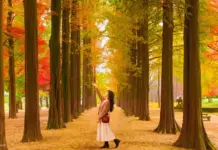

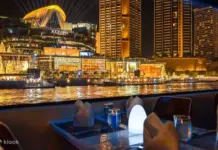
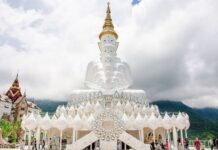

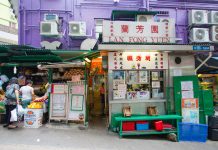
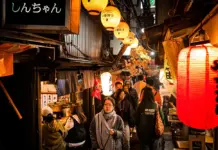
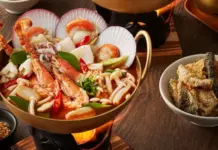



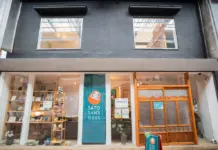
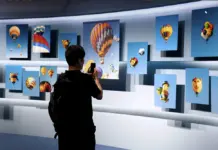

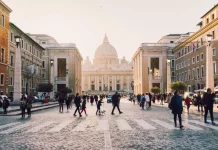
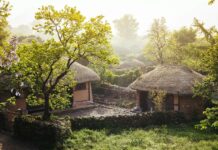


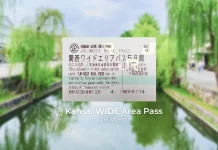


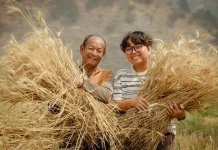
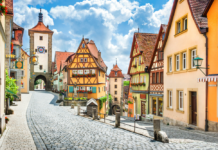


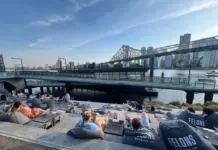
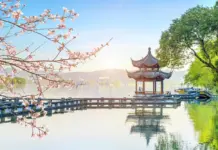

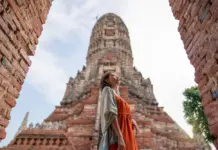
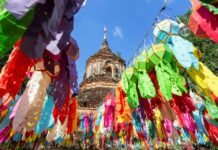

![10 best airports in Asia in 2016 [RANKED] kuala-lumpur-international-airport-best airports in asia in 2016 by skytrax ratings](https://livingnomads.com/wp-content/uploads/2016/08/29/kuala-lumpur-international-airport-best-airports-in-asia-in-2016-by-skytrax-ratings-218x150.jpg)
